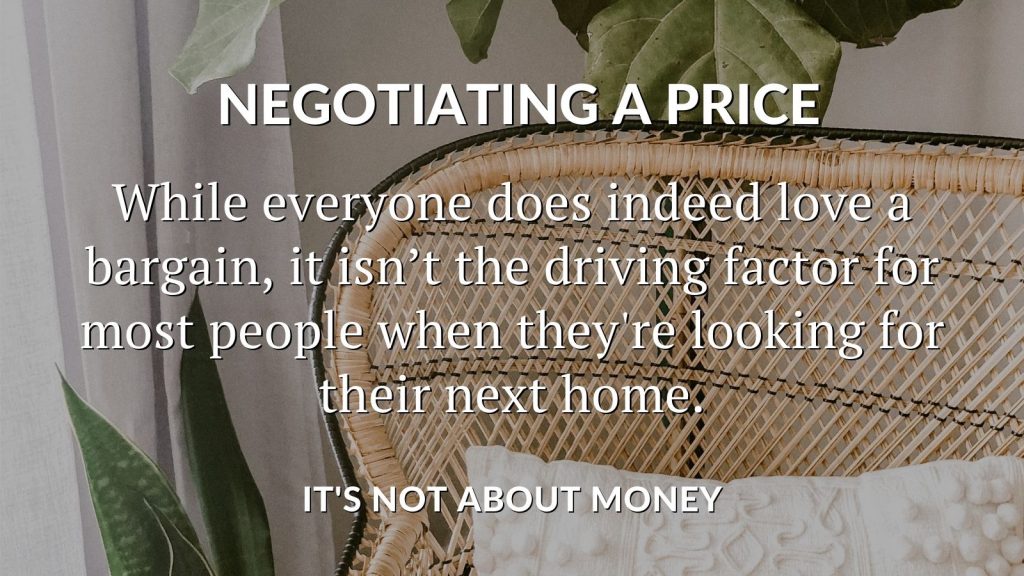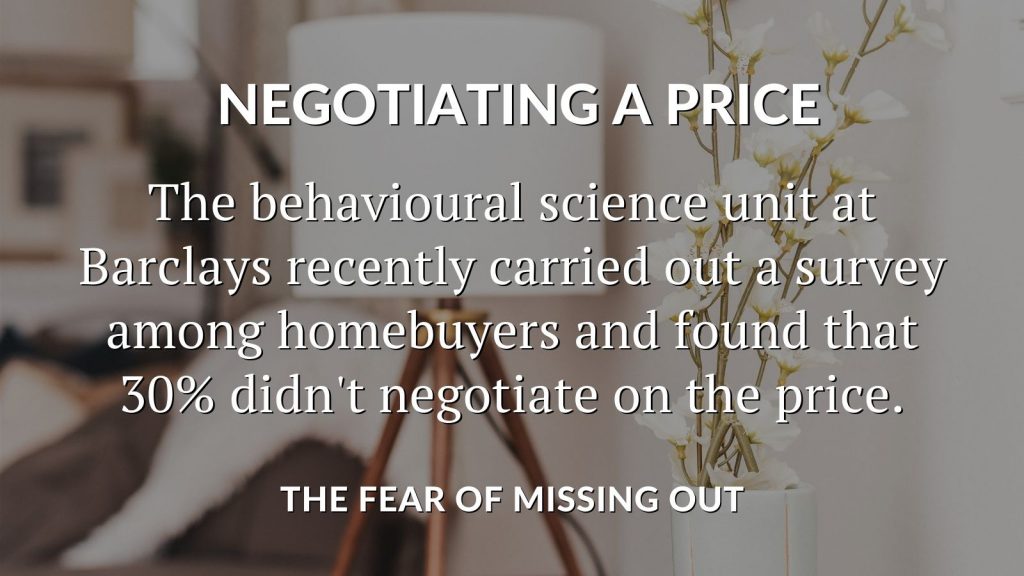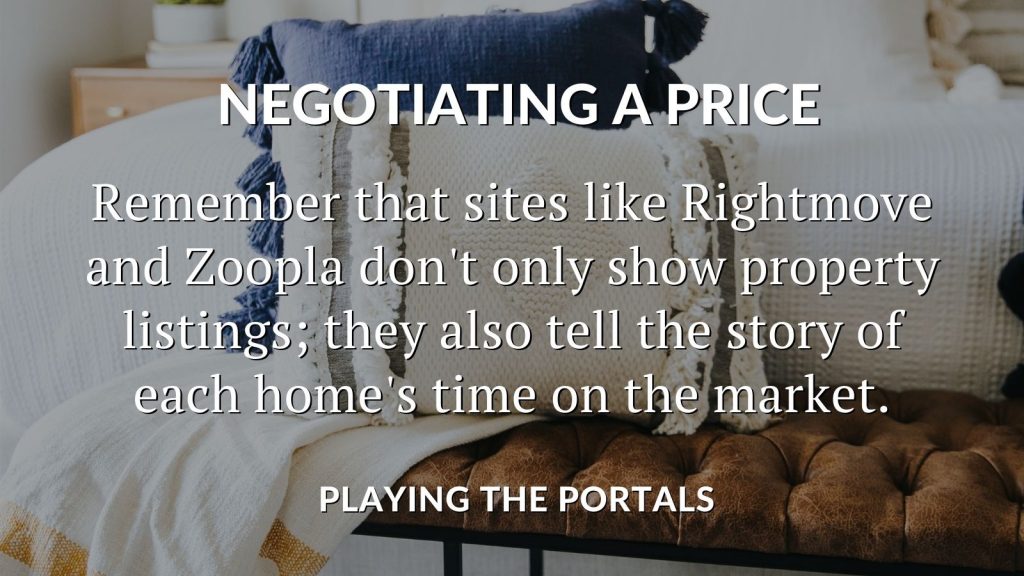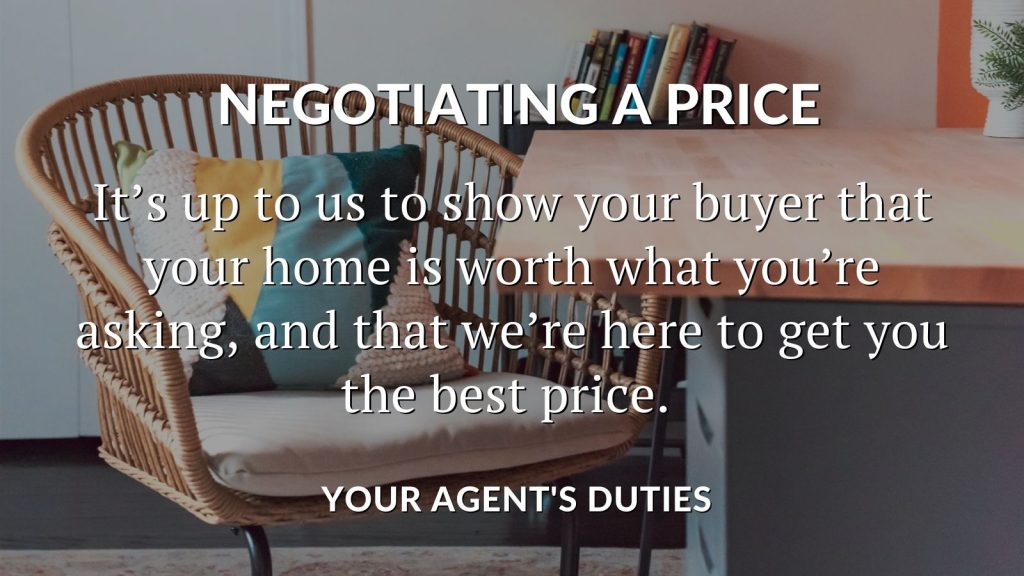GET YOUR HOUSE IN ORDER… FOR LPT!

The new Local Property Tax deadline is fast approaching, and property owners are now receiving a letter containing their account details from Revenue.
So what’s this all about, and what do you, a property owner, need to do?
Local Property Tax is an obligatory, self assessed tax. Owners need to do some research into how much their property is worth, and declare their opinion of value to Revenue. Most people will do this online (using the Property ID and PIN that’s in the letter Revenue sent to owners), whereas some will need to phone Revenue to ask for help.
It’s 8 years since we last had to value our property for local property tax purposes. And as everyone knows, property values have changed considerably in the intervening years.
The valuation date is 1 November 2021 – what this means is that owners must as themselves: How much do I think my property is worth on that date (at the present time)? Owners can do this research using the following ways:
- Go to property websites like www.daft.ie or www.myhome.ie and look for property that is similar to yours in location, accommodation and condition
- Go to www.propertypriceregister.ie and search for properties in your area to see what they sold for – remember to search close to late 2021
- Talk to neighbours
- Arrange to get a property valuation report – you can book this here. A valuation for LPT typically costs €150
If your property is unusual, or perhaps has problems like planning or structural issues, or may be entitled to an exemption, then you should arrange an LPT valuation.
Watch our free webinar to explain all about LPT: the exemptions, the bands, the ups and downs of LPT.
You can access below. Simply fill in your details below.
REMEMBER: LPT Returns must be made before 7 November, so don’t wait until the last minute to Get Your House in Order!
[ninja_form id=2]THE ECO LANDLORD: OUR GUIDE TO SUSTAINABLE & PROFITABLE BUY-TO-LET SUCCESS
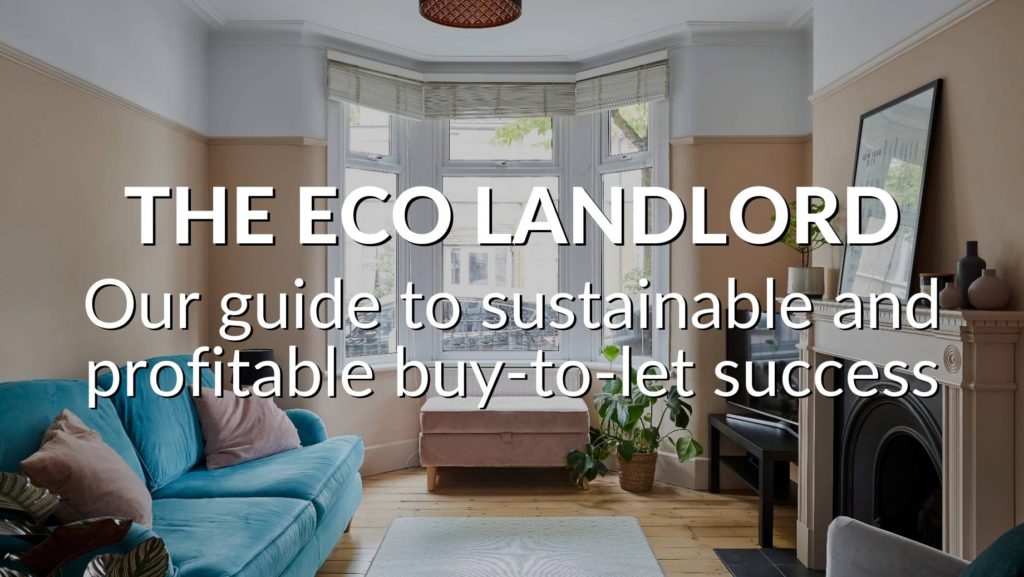
Energy prices are rising, utility bills are on the up and legislation around the energy efficiency of rental homes is getting tighter.
This background of higher costs and stronger rules, along with the ever-louder conversation around climate change, is making all of us acutely aware of our carbon footprint and how much money we’re wasting on bills.
As a landlord, although you probably take pride in your rental property and take energy efficiency seriously, you might wonder whether making improvements is simply an extra cost to you with no benefits. Is it really worth your while?
Well, tenants will pay more rent for – and stay longer in – a comfortable, warm and energy-efficient home. Your improvements will also protect the sales value of your property, increase your equity and give you more leverage to refinance and expand your portfolio.
With that mind, here’s our guide to being an eco-friendly landlord with a profitable and sustainable business.
TENANTS CARE ABOUT ENERGY USE
Nobody wants to pay more for their utilities than they need to, and with energy prices forever on the increase, tenants, just like everybody else, are looking at where their money is going.
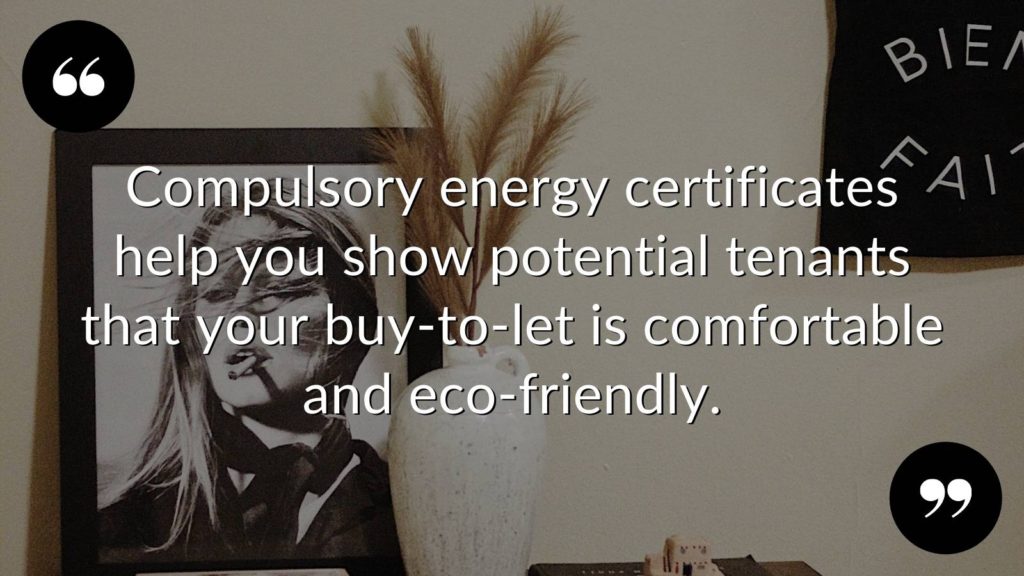
Even back in 2018, a survey by Prism revealed that 42% of tenants took energy efficiency into account when searching for a home. And when we’re out on viewings, the question of running costs is a regular part of the conversation.
Since the introduction of compulsory energy certificates, it’s easy to see whether a rental property is economical to run and comfortable to live in. With many tenants saving for a deposit to buy their own home alongside paying rent, energy efficiency is not merely an attractive option for them, it’s the key to their future.
Legislation is only going to get tighter in order to meet the Government’s carbon emissions targets, so getting ahead of the curve will ensure your buy-to-let retains its spot as a first-choice option among high-quality, long-term tenants.
EFFICIENT HOMES = EFFICIENT RENTALS
We manage many properties and the most expensive and time-consuming homes for landlords are those where things keep going wrong. When outdated boilers and appliances start breaking down, the costs of replacement parts and visits from contractors soon add up.
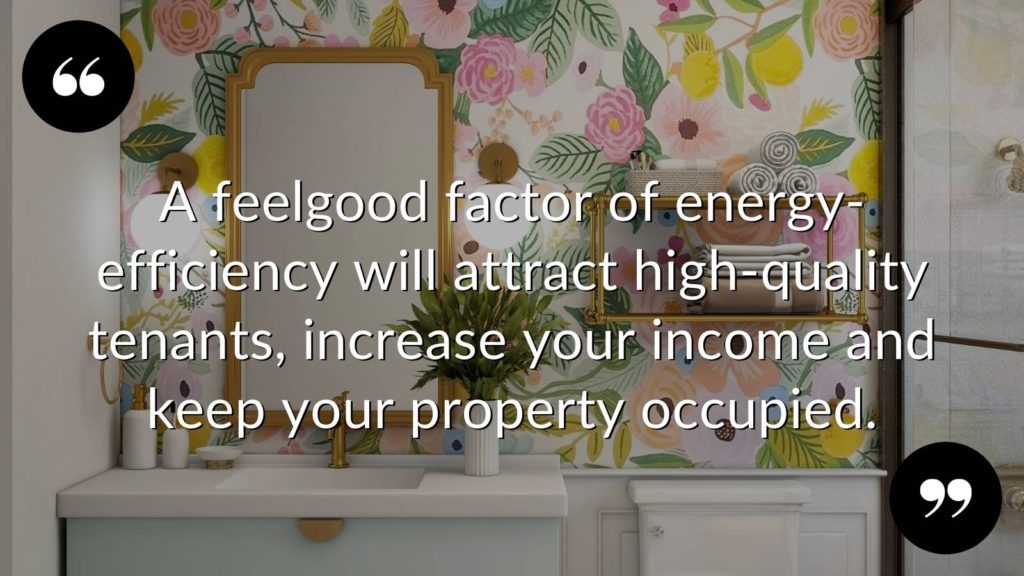
Unfortunately, nothing ever stops working at a convenient moment, and boilers in particular have a habit of dying in the middle of winter when your tenants need them the most. Having to deal with that and a heated phone call at 7am when you’re trying to get ready for work is really no fun at all.
Very simply, homes where things don’t work properly are homes that tenants leave. That means more vacant days, loss of income and reduced future rent when a property looks and feels out of date and costly to run.
Always keep the longevity of tenancies at the front of your mind – you can’t beat uninterrupted income for the best return on your investment!
ECO-FRIENDLY OPPORTUNITIES TO CHECK
You don’t have to do everything at once, but making a list will give you a clear picture of potential improvements.
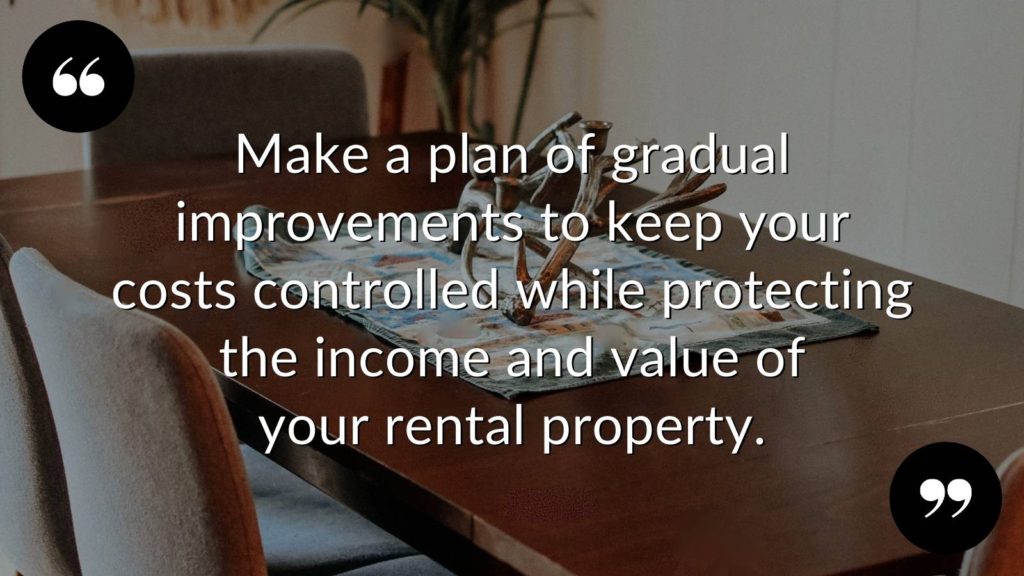
Quick upgrades include:
- installing flow restrictors on taps, showers and loos;
- fitting draft excluders to window frames and doors;
- adding thermostats to radiators;
- replacing any outdated appliances.
These can all be done during the working day without disturbing your tenants.
Larger works to consider:
- loft insulation;
- plugging gaps in exposed floorboards;
- replacing a boiler;
- renewing drafty old windows
These all make a big difference to the energy efficiency, comfort and rentability of a home, but they can also be messy and disruptive and we’d generally advise carrying them out between tenancies.
PROJECT-MANAGE YOUR UPGRADES
Creating a timetable of energy-efficiency improvements will help you keep on top of legislation with a property that retains its tenants and value.
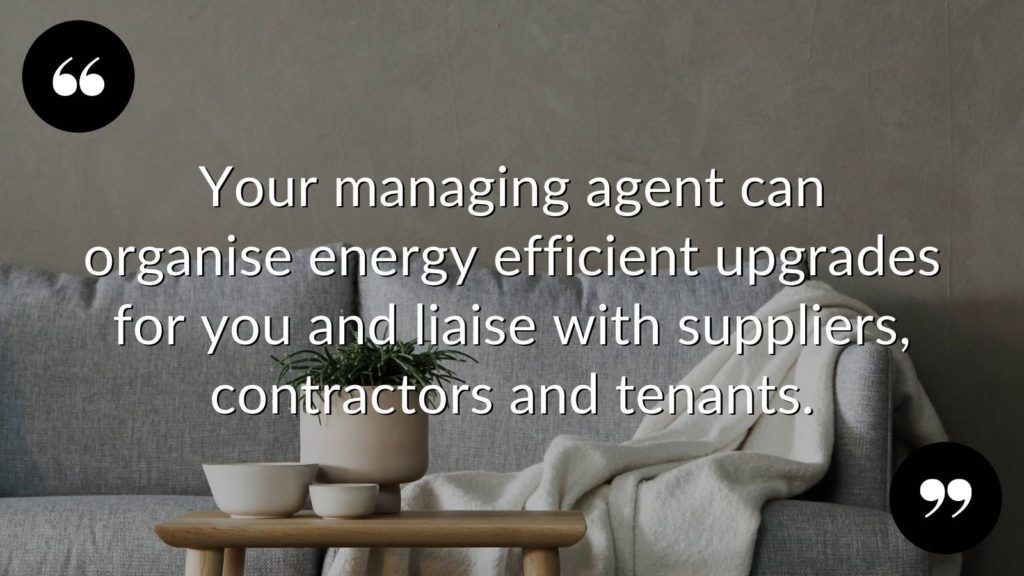
It’s really worth setting it all out so you can decide what to prioritise, what to plan in the future and what makes financial sense now and later on.
As well as obtaining quotes for any works to be carried out, check whether contractors will pick up the materials for you, or whether you need to order them yourself and have them waiting at your property.
Ordering appliances may need some market research for the best deal, then liaising with your tenants over a delivery time, arranging installation and having the old items taken away and disposed of.
A good managing agent can organise all of this for you and check that works are complete without you ever needing to visit or make a call.
BALANCING CASH FLOW & COSTS
As with any business, cash flow is king!
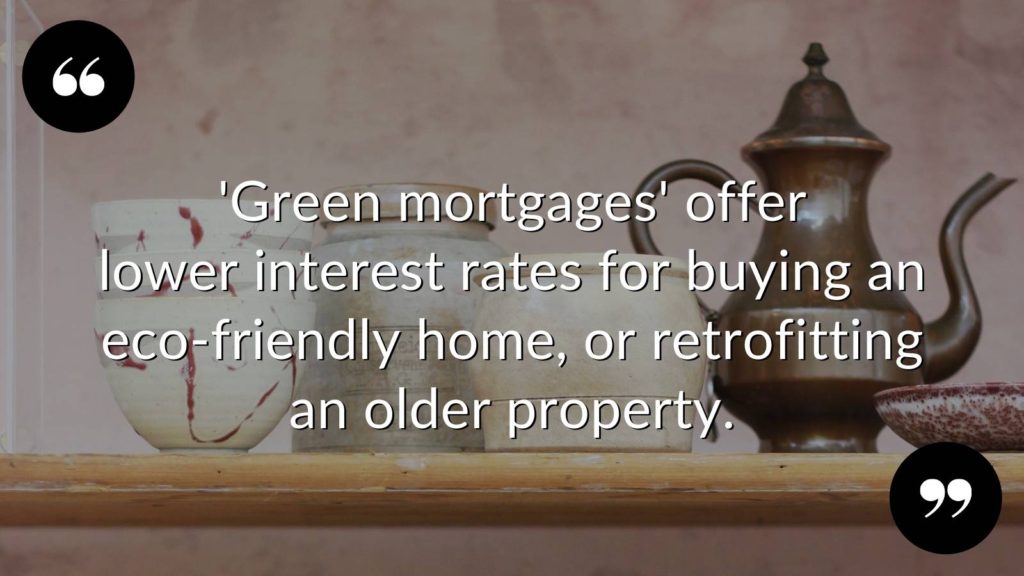
Some energy-efficient upgrades like flow-restrictors cost so little that you’ll hardly notice the difference in your pocket, but for larger expenditure around insulation, windows and heating, you may find it makes more sense to spread your outgoings over time.
You can often find interest-free offers on white goods from large retailers like Currys, and they’ll even remove your outdated appliances after installing new ones.
For more expensive works, have a chat with your financial advisor. Remortgaging your buy-to-let is often the most financially-efficient way to invest in improvements without large upfront expenditure that leaves a hole in your income.
So-called ‘green mortgages’ are becoming more widely available and offer lower interest rates for either purchasing an eco-friendly home, or retrofitting an older property.
Final words
Energy-efficient upgrades are about so much more than simply keeping up with legislation. With the right execution they make sound financial sense and help you attract high-quality, long-term tenants and increase your income by creating a feelgood-factor around your portfolio.
We’ve helped many landlords to maximise the demand and yield for their buy-to-let homes, and we can help you do the same. If you own a rental property in County Louth and you’d like to talk about making the right improvements, call for a chat on 042 933 2482 or email info@lavelles.ie -we’d love to be your managing agent and help you grow your business and passive income.
LONGER LETTINGS: HOW TO ATTRACT AND KEEP GREAT TENANTS FOR YEARS

Every landlord and tenant wants exactly the same thing: security and stability. As a landlord, you want an uninterrupted income stream, while tenants want an uninterrupted home life.
Renting a property has become a more permanent lifestyle choice, and tenancies are getting longer and longer. Many tenants plan to stay in a home for 3 or 4 years – and sometimes more than that – which means they’re looking at potential properties in more detail.
From our experience with the homes we manage, we can say that the longer a tenant enjoys living in a property, the more connected they feel and the more they learn to love and care for it as if it were their own.
Longer tenancies also mean less tenant turnover, resulting in less paperwork, less wear and tear from people moving in and out, lower administration costs and fewer void periods. In short, it’s really worth preparing your property to capitalise on the trend.
The lettings market in County Louth has many high-quality people looking for long-term homes to rent, so we’ve packed our blog this week with valuable tips on attracting great tenants and keeping them for years.
Enjoy the read!
EXTEND AN INVITATION
It might seem blindingly obvious, but a sure-fire way of attracting long-term tenants is to openly declare that you want them.
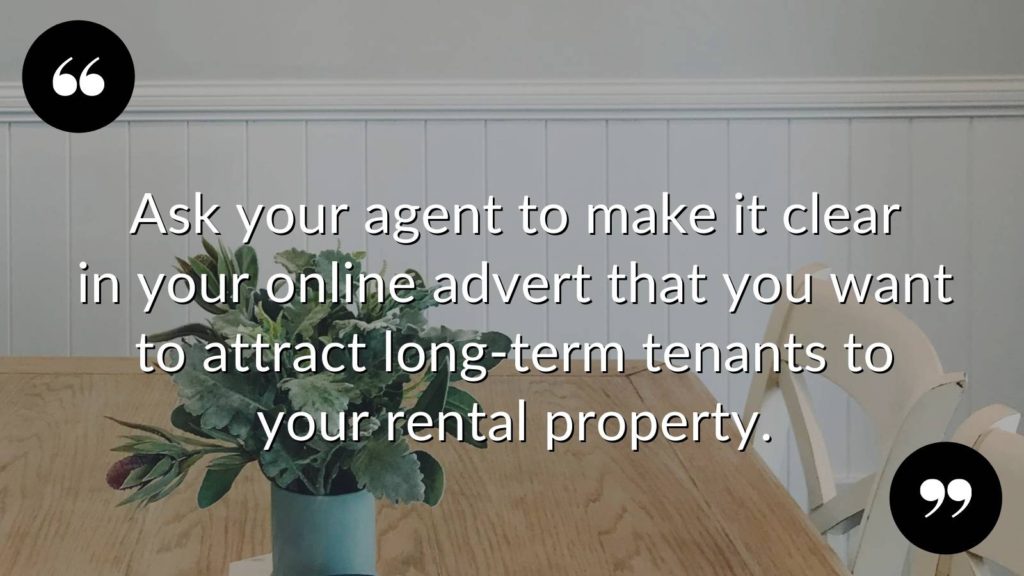
The description of your rental property is the perfect place to advertise that you’re actively seeking enquiries from tenants in search of a long-term home, so ask your agents to include some words to that effect.
You don’t need to sign a longer tenancy agreement. Life throws too many curveballs for tenants and landlords to over-commit, but welcoming applications from long-term tenants will send a clear message to the people you want to attract.
Be clear that your goal is for you and your tenants to be happy for many years and that long-term happiness for you means having the rent paid on time, your property looked after and no complaints from neighbours about noise or nuisance.
REMOVE PESKY NIGGLES
We all know what it’s like to stay in a hotel or Airbnb with dribbling water pressure or cheap fittings. They can take the sheen off a holiday, saved only by the promise of heading back home.
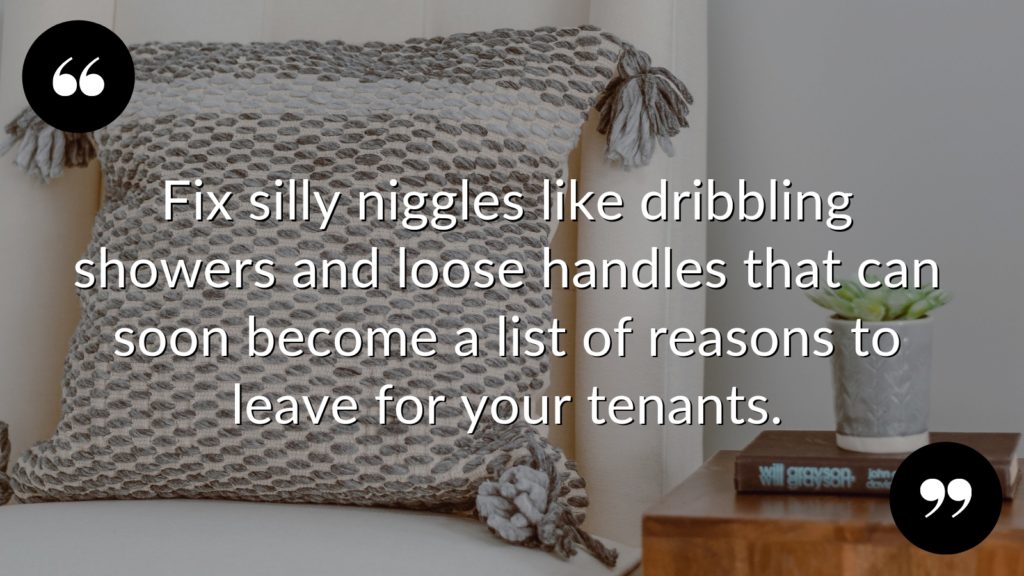
But having to deal with minor annoyances every day of your life would soon have you looking for somewhere new to live.
Typical on the list of niggles for tenants are rickety door handles, wobbly taps, mouldy grouting, fiddly locks, difficult windows, loose loo roll holders and a leaky shower hose. Each is fairly trivial on its own, but they can soon grow into a long list of bugbears and reasons to leave.
These are simple jobs that are easy to fix, and they add to a sense of carefree comfort where petty problems don’t exist.
Remember that you can claim repairs as a tax-deductible expense, so avoid the temptation of cheap and short-term fixes. Think instead about the long-term value of your investment and remedy everything as though your buy-to-let is where you live.
OFFER A FRESH START
Is there anything at your buy-to-let that’s starting to look tired? Keeping your property up-to-date has a direct impact on increasing your monthly income and the value of your investment, as well as demand from tenants and holding onto them.
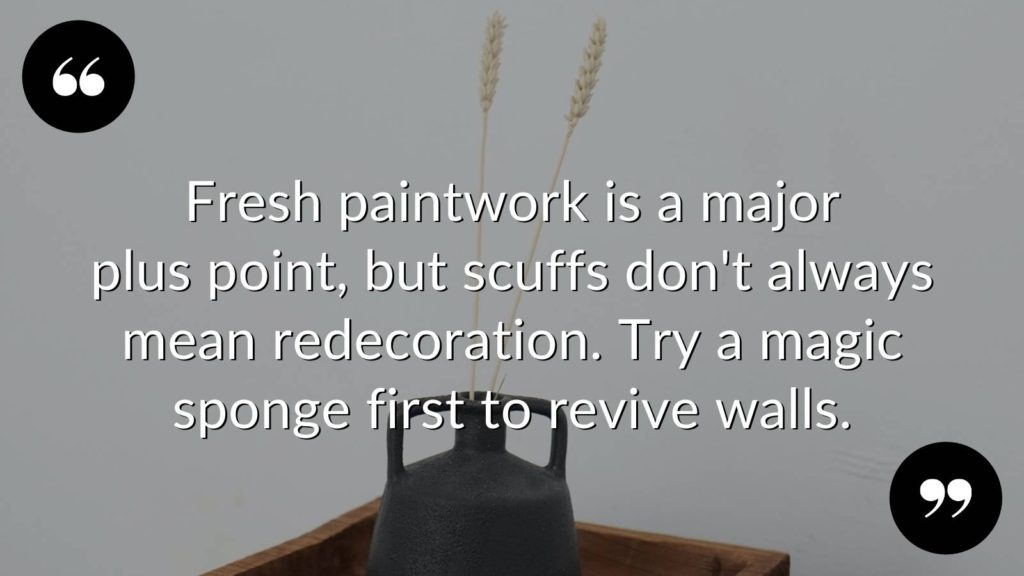
A good-looking and powerful shower makes all the difference in starting the day in a good mood instead of a bad one. Mixer taps with a hose don’t cut it anymore, and an independent thermostatically controlled unit is an inexpensive and highly visual upgrade.
In the kitchen, we’ve come a long way from the solid plate electric hobs and dark brown ovens of the 1990s. Even if they still function, they won’t be energy-efficient, and they drag down everything around them. Replace any dated appliances with good-quality new models: stainless steel goes with everything, white looks fresh and clean, and black is a dash of sleek style.
Scruffy paintwork will only ever get worse, but scuffs don’t always mean you need to redecorate. Marks will often wash off with a magic sponge, so try one of those first to revive your walls and give your tenants a fresh-feeling home.
If you do need to paint, pick a light and airy neutral shade like an off-white or soft Nordic grey to go with anyone’s taste and furnishings.
SHOW HOW MUCH YOU CARE
Staying in touch with your tenants from time to time is a valuable exercise in nurturing your relationship.
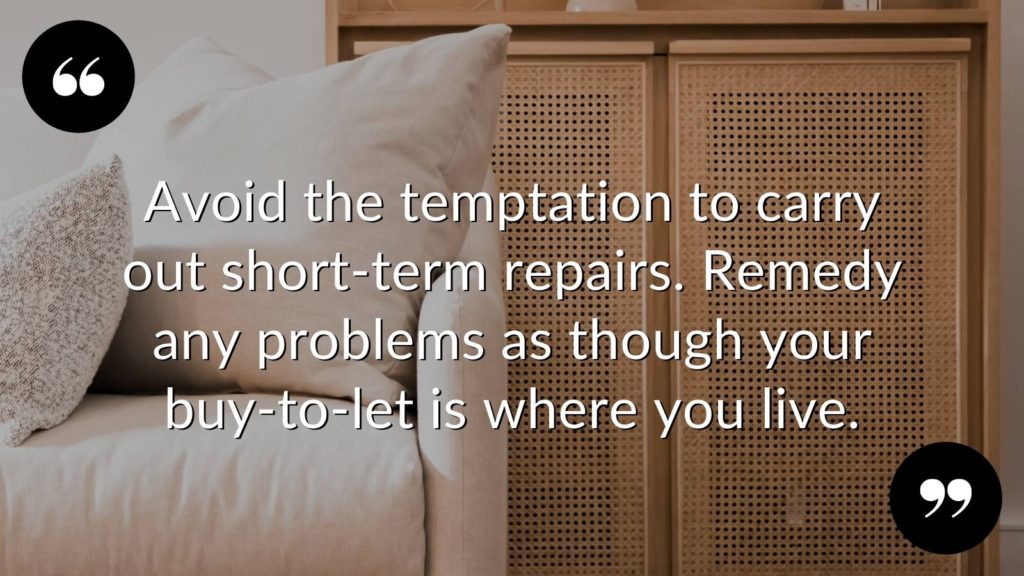
Half-yearly inspections are not just about checking up on your property. There’s also an opportunity to show that you care about your tenants’ enjoyment of living there.
We love making interim visits to the homes we manage because they keep a connection between the tenants and us. They know we haven’t forgotten them, and they can see our interest in caring for where they live.
Sometimes a minor repair goes unnoticed by your tenants, or they feel it isn’t yet worth reporting. A fresh pair of eyes can spot anything they missed, and fixing even the slightest issue gives your tenants confidence and comfort while nipping a potentially larger problem in the bud.
CONSIDER THE VIP TREATMENT
When you look at the lifestyles of your likely tenants, could you add any services to the rent to make the experience of living at your property even more special? Many people will happily pay extra for convenience and time saved.
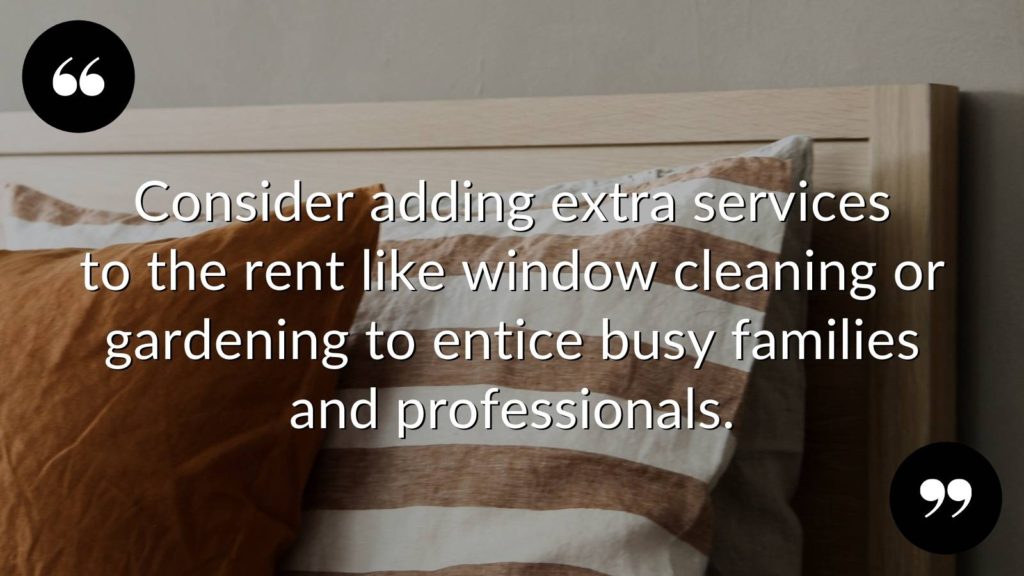
Window cleaning is an often-forgotten chore in lettings, but sparkling panes significantly increase the amount of natural light in any home and make it a more enjoyable place to live. A regular visit from a window cleaner would maintain that bright and fresh feel.
If your property has a beautiful garden, you might want it to stay that way. Not every tenant has green fingers, but that doesn’t mean they won’t appreciate a lovingly tended space to be outside.
An organised monthly visit from a gardener to mow the lawn and look after the plants could well be what hooks and keeps the perfect tenants.
Final words
With a little extra thought, you can design your buy-to-let as a home where tenants want to live for many years, and the rewards are plentiful and tangible.
We’ve helped many landlords attract high-quality, long-term tenants to get the best return on their investment, and we’d love to help you do the same.
If you own a rental property in County Louth call us on 042 933 2482 or email info@lavelles.ie for some expert and friendly advice.
BEING A LANDLORD: IS BUYING TO LET RIGHT FOR YOU?

Owning one or more buy-to-let homes is the dream of many people. The idea of passive income, financial security and building a comfortable retirement is an inviting prospect that, for many landlords, has led to a complete change of lifestyle and career.
Alongside all the headline benefits are many things to consider before embarking on the journey. There’s plenty of legislation to keep on top of to ensure your rental homes stay compliant with every change in the law, and it’s also important to remember that being a landlord means running a business.
A bit like a romantic relationship, the beginning is the easy bit – buying a property is just the start and, once you’ve picked up the keys, the real work begins. You’ll learn all sorts of things about yourself, not least when things don’t go to plan.
So, let’s take a look at some of the aspects of starting, building and managing a rental portfolio so you can decide whether being a landlord is something for you.
RESEARCH
Knowing the local marketplace is the foundation to being a successful landlord.
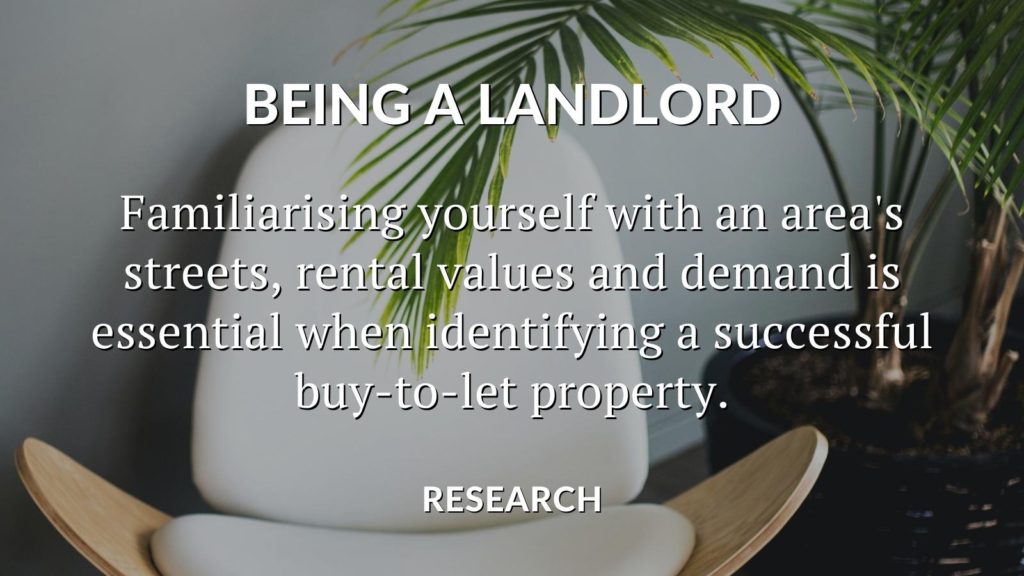
Having a handle on which streets rent well, the sort of people they attract (families, sharers, couples, singles), the level of demand and the rents being achieved are crucial components in focusing your search.
Whatever location you choose, there’s some essential legwork in making sure the home you have your eye on will make a sound rental investment, and that means putting in the hours.
As well as looking at listings online, going for a wander to get a real feel for the neighbourhood will help you identify suitable properties faster and give you more comfort in committing to a purchase.
NETWORKING
Although almost every available property appears on the online portals, there’s little to beat approaching estate agents direct and forging relationships.
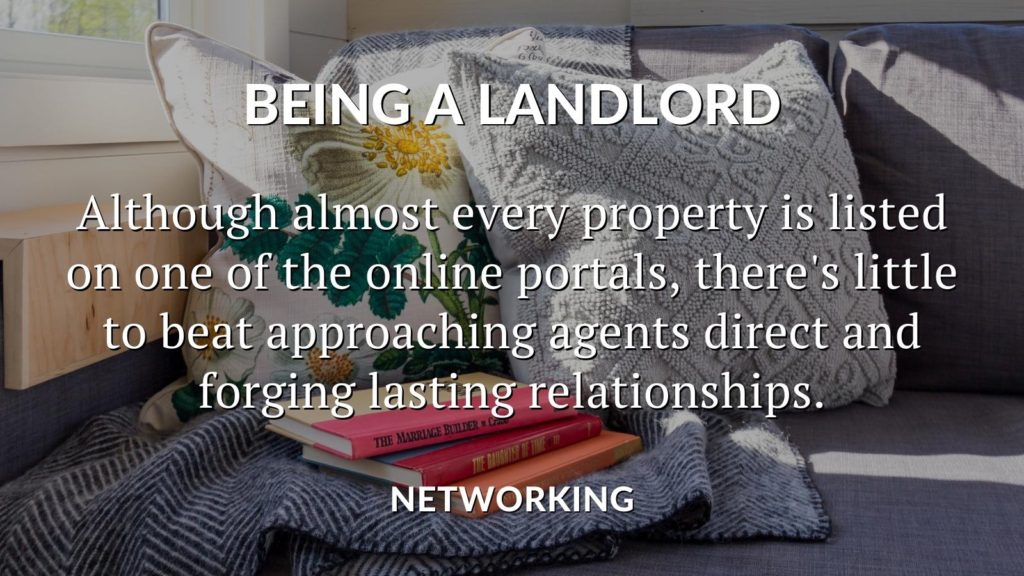
Most enquiries come in by email, but most estate agents would much rather talk than type, so picking the phone to introduce yourself is a great start in standing out from the crowd and being remembered.
Any successful property investor will tell you that staying in touch with local estate agents is key to demonstrating commitment and finding out about new property listings first. It’s remarkable how few landlords do this, but if all you do is wait around for an email alert, you’ll just be another name on a list.
Identify the best local agents for the type of property you’re interested in, then put in some time to develop a relationship and trust. Showing them how serious you are, giving them a clear picture of what you’re looking to buy and being a regular friendly face (or voice) will really pay off.
FINANCIAL MANAGEMENT
Being a landlord is a business, and all businesses require a degree of financial management.
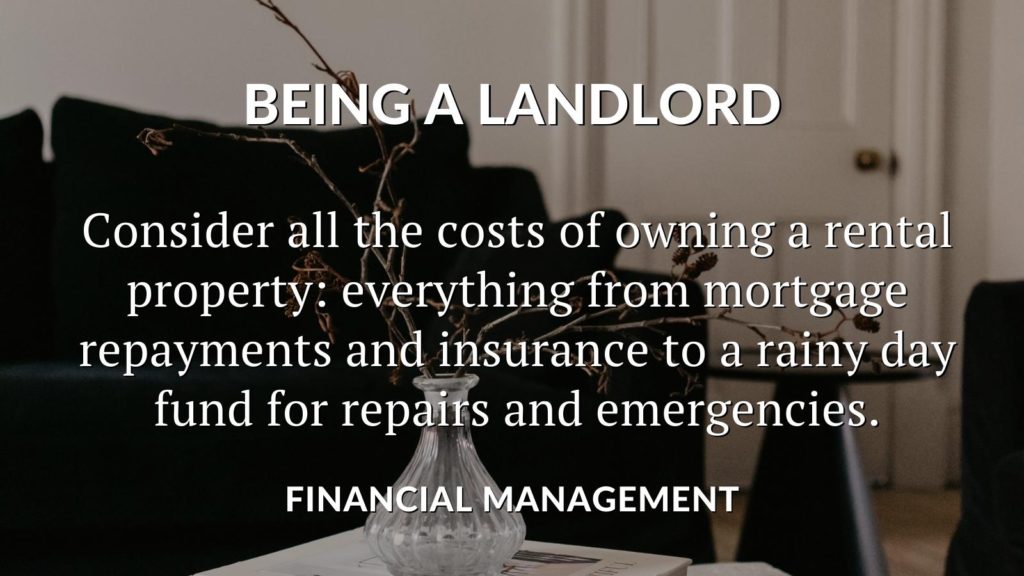
First and foremost, having your finance agreed should be your main priority before you even start viewing. Estate agents need to make sure that whoever they introduce to a property is in a position to move, and having the money in place will make you a better prospect.
After that, you need to consider all the costs of owning a rental property: everything from mortgage repayments and insurance policies to a rainy-day fund for regular maintenance and urgent repairs. Check that all the numbers stack up for you to keep your property in good shape.
It’s not essential to be a financial wizard, but plenty of landlords come unstuck by not having anything in place to deal with the unexpected. Always keep your focus on achieving the highest rent, minimising vacant days and protecting the long-term value of your investment.
COMMUNICATION
The way you talk to people and handle their concerns will directly impact your experience of being a landlord, from the calls, emails, and texts you make to the ones you receive.
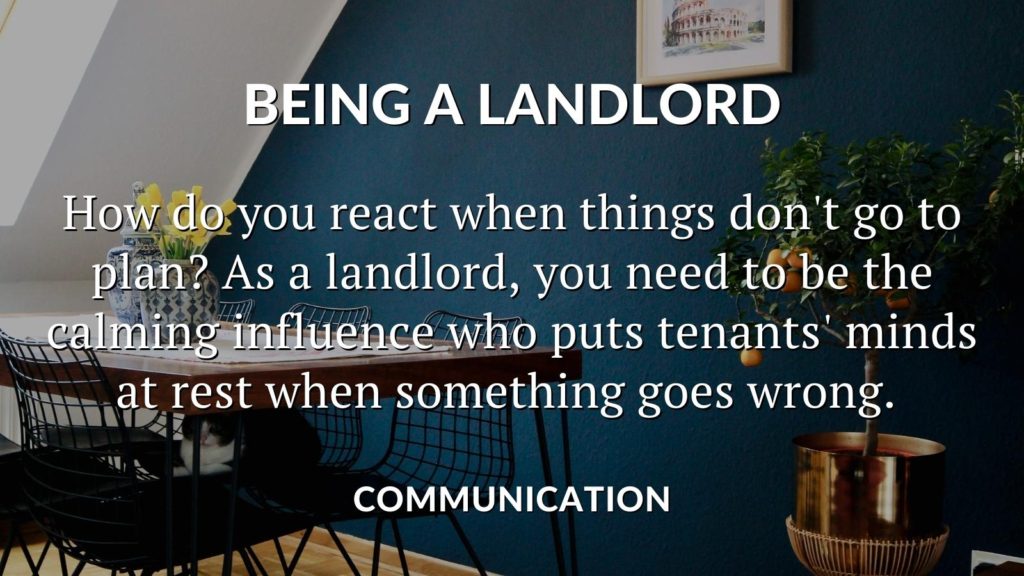
How do you react when things don’t go to plan? As a landlord, you need to be the calming influence who puts your tenants’ minds at rest when something goes wrong. To coin a phrase: can you keep your head when those about you are losing theirs?
It’s all about managing expectations. Your tenants need to feel looked after and informed, which means adopting a caring tone when they call, reassuring them that you’ll get onto the problem straight away, and then staying in touch over progress.
When will a contractor visit? Is nobody at the service centre answering the phone right now? Will there be a delay in finding a spare part? Has the engineer actually turned up? All of these need to be relayed to ensure your tenants aren’t left wondering if you’ve forgotten them.
Communication is incredibly important to everyone, but it’s easy to fall short when it comes to keeping people informed. Remember that not knowing what’s happening can turn into a bigger frustration than the problem itself.
ORGANISATION
Owning a buy-to-let property comes with obligations for a landlord – and expectations from tenants – in keeping a home comfortable and legally compliant. So, an excellent question to ask yourself (and to answer honestly!) is how organised you are.
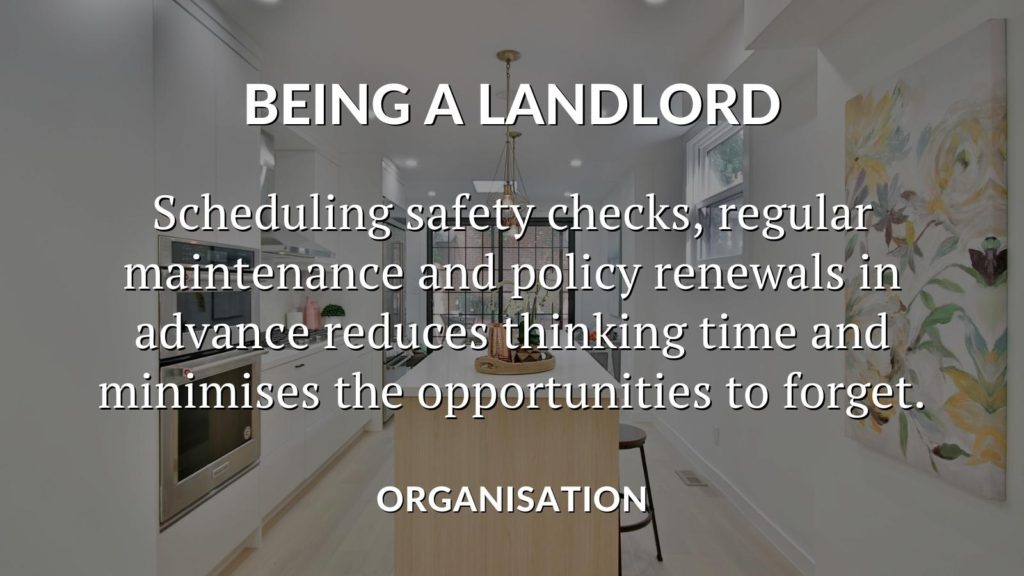
There’s a difference between looking after the home you live in and dealing with problems that come up somewhere else. Organising repairs and maintenance between tenants and contractors requires time and effort, and not always at a convenient moment.
A good start is to schedule annual safety checks, regular maintenance, servicing contracts, policy renewals, and mid-tenancy inspections in advance. You want as much running like clockwork as possible to reduce thinking time and minimise the chances of forgetting an important date.
You also need contractors to call so you can attend to problems quickly and maintain good relations with your tenants. At a basic level, having a reliable electrician, plumber, gas engineer and general handyman in place will save frantic phoning around at the last minute (and avoid the uncertainty of who might turn up).
It’s worth deciding at the outset whether you’d like to be fully hands-on, or if you’d prefer a managing agent to take care of things for you.
Final words
There’s a lot that goes into being a landlord, but you don’t need to do everything yourself. In fact, you can stick to the fun stuff like looking at homes, then outsource everything else for a truly passive income.
We’ve helped many landlords in County Louth to start and build a successful lettings portfolio, and we’d love to help you too. Call us on 042 933 2482 or email info@lavelles.ie for a friendly, expert chat about where to go from here.
RENTING TO FAMILIES: OUR FIVE-STEP FORMULA FOR THE PERFECT BUY-TO-LET
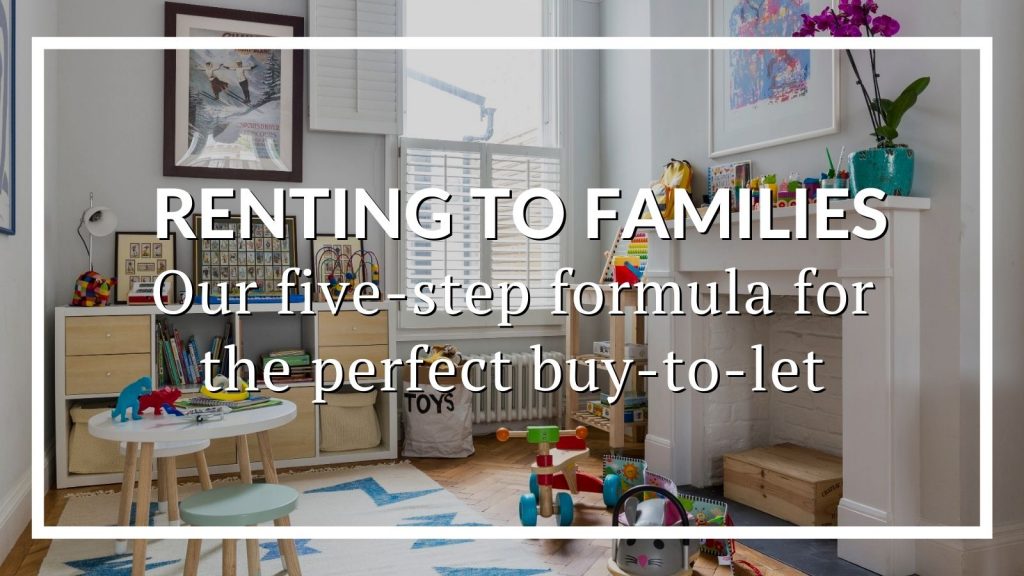
Families are among the most stable tenants you can find, not least because the process of moving home is so much more complicated than for single people and couples.
As well as having more furniture and belongings to pack and transport, the potential disruption to children’s lives, including changing schools and finding new friends, means families are usually on the hunt for a long-term home.
That’s good news for you as a landlord because it cuts down on void periods and means your tenants get to form a deeper and longer connection to your property, which usually translates into caring for it as if it were their own. That’s backed up by research from the National Landlords Association that family homes are, on average, 30% less work to manage.
Families look for particular qualities in considering whether a property is suitable for them, so this week is all about ensuring your buy-to-let property ticks all the boxes as a family home.
If you’d like to talk in person about the best locations for buying a family rental property in County Louth, or for advice on making your existing buy-to-let more family-friendly, call 042 933 2482 or email info@lavelles.ie.
THE RIGHT LOCATION
Families have multiple considerations when it comes to choosing where to live. Location has a substantial impact on value, rentability and profitability, so the trick is to hit the right combination of schools, transport and safety.
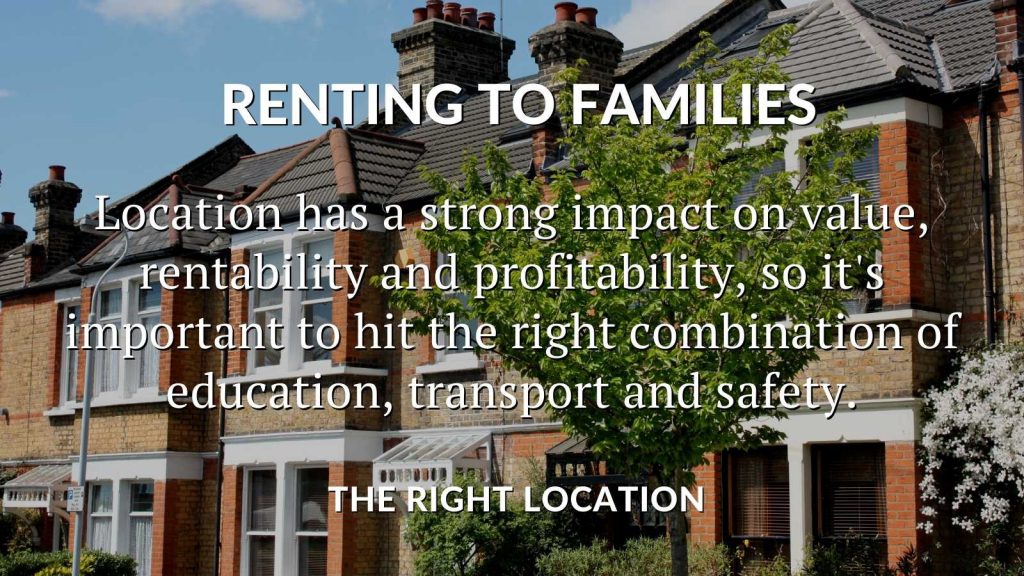
Schools
Education is a hugely important area for families, with parents keen to give their children the very best start in life. If you’re looking for a family rental property in County Louth, ask us about the most popular local schools, their catchment areas, and which streets will give you the best rental return and speed of let.
Transport
Whether it’s the bus or the train, local transport connections can be a consideration for the entire household.
If children are taking public transport to school, make sure there’s a bus stop or station nearby that goes where they’re going. Also, consider where parents are likely to commute and how convenient a property is for travelling between home and work.
Safety
Families with children of a school-going age tend to avoid homes on main roads. Look for streets with less traffic and plenty of other families, so your tenants feel at home among their neighbours and confident in the safety of their children when they go outside.
FREE TIME AND FUN
As well as having a comfortable home, families need to think about enjoying weekends and evenings, whether as a complete unit or apart.

Take family activities like seeing a film, walking in the woods, having a picnic, swimming, eating out… From parks and nature to sports facilities and entertainment venues, every parent and child will have their own interests, so look at what’s within striking distance that caters to a family-friendly lifestyle.
It’s also worth considering whether access is only by car. If parents always need to drive, that will open up possible conflicts with teenagers feeling stranded. As they gain a stronger sense of independence, they’ll want to meet up with their friends alone, so explore what’s reachable by foot, bike or public transport.
THE RIGHT ACCOMMODATION
Whatever size of family you wish to attract, there are some golden rules to follow.

Storage space is vital. Suitcases, daypacks, sports equipment, tools, bikes, an ironing board, vacuum cleaner, coats, shoes, umbrellas, Christmas decorations and plenty more besides, all need somewhere to go.
Look carefully at how your property can swallow modern family life and all its belongings – cellars, lofts, understairs cupboards, and garden sheds are all useful for hiding away stuff, whether for occasional or everyday use.
A good-size garden with a lawn is essential as a haven for children and pets to play, as well as family mealtimes and barbecues. Make sure any boundary walls or fences are secure and keep any planting simple and low-maintenance.
Steer clear of the temptation to carve up bigger bedrooms into smaller spaces. Children tend to outgrow their bedrooms rather than shrink into them, so keep the original layout. By all means, add extra bedrooms if there’s space in the loft or for an extension, but check with us first that your plans are in line with demand.
Remember that more bedrooms mean more people, so find a way to include at least an en-suite shower room to alleviate the morning rush in a larger household. In the main family bathroom, be sure to retain the tub for kids’ bath time.
Most families have at least one car and will want somewhere to park. Although driveways and garages are ideal, they’re less common in homes before the 1930s, and many families will be okay with street parking. Look at the overall parking situation on the street and whether permits are available for residents.
THINK ABOUT PETS
Be open to pets. They’re a precious part of life for most families and are usually problem-free.

You can alleviate any concerns with some well-chosen questions, and you’ll find most families are happy with an extra clause in the tenancy agreement that sets out responsibility for damage by either their pets or visiting ones.
Dogs are the neediest and shouldn’t be left alone for long periods, so if the family does have a dog, ask whether someone is usually home during the day. It’s also worth finding out the breed so you can gauge whether your property is a suitable size.
Cats are more independent, and a secure, lockable cat flap installed in a door to the garden will make it easy for them to get outside.
FAMILY-FRIENDLY FIXTURES
The fittings inside a family home should balance durability, the practicalities of modern family life, and child safety.
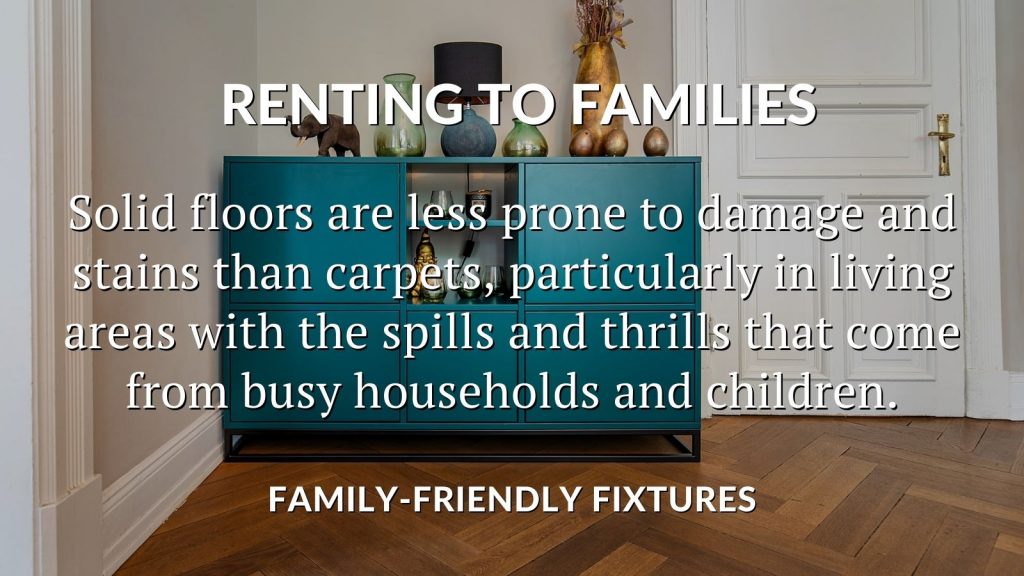
Childproof catches on windows, external doors and floor-standing kitchen cabinets are an inexpensive way of providing welcome peace of mind for parents – and for showing you care.
Kitchens need plenty of cupboards for food, pots, plates and gadgets, as well as ample work surfaces. A tall, family-sized fridge freezer is essential, and, depending on the size of the property, you should either include or be open to including a full-size dishwasher. Extend the same openness to including a washing machine with at least a 7kg load capacity to cope with family use. Models from mid-range brands like Neff, AEG or Bosch will give you years of service.
Curtains or blinds are expected even in unfurnished lettings, and we suggest wooden Venetian blinds with twist-wand controls, or fitting safety cleats at a height beyond the reach of children.
Solid floors are a wise option as they’re far less susceptible to damage and stains than carpets, particularly in living areas with the spills and thrills of busy households and children.
Final words
Striking the right balance between location, accommodation and specification will attract the best family tenants, achieve the highest rent and help you achieve valuable long-term tenancies and minimal void periods.
For expert advice on the best streets in County Louth for renting a property to families, why not get in touch? Call for a chat on 042 933 2482 or email info@lavelles.ie for genuine local insight on creating the perfect family home from your buy-to-let investment.
LETTING GO: ALL YOU NEED TO KNOW TO SWITCH MANAGING AGENTS

How do you feel about your current managing agent? If you’re reading this, perhaps you have some doubts.
Whether your buy-to-let is for additional income or your long-term financial freedom, it’s vital to have complete confidence and comfort in your choice of letting agent. From the moment you first ask them to find you a tenant, and throughout their time looking after your investment, you should feel protected and prioritised by their abilities and actions.
Feeling disheartened about the management of your property can come from any number of reasons, and it usually boils down to one or more of:
– poor value for money
– excessive void periods and loss of rent
– continually finding troublesome tenants
– overcharging for repairs
– unnecessary expenses incurred
– inadequate upkeep & maintenance
– unhelpful or rude attitude
– failing to carry out inspections
– lack of communication
– chaotic compliance and paperwork.
These are all valid concerns, so if you think it’s time to change your letting agent, follow our tips for your next best steps.
If you own a buy-to-let property in County Louth and are looking for a new managing agent, we can help you make the switch smoothly and swiftly. Just pick up the phone to 042 933 2482 or send us a message at info@lavelles.ie to get your fresh start underway
PINPOINT THE PROBLEM
Before rushing in and moving on, take some time to consider why you wish to switch letting agents.
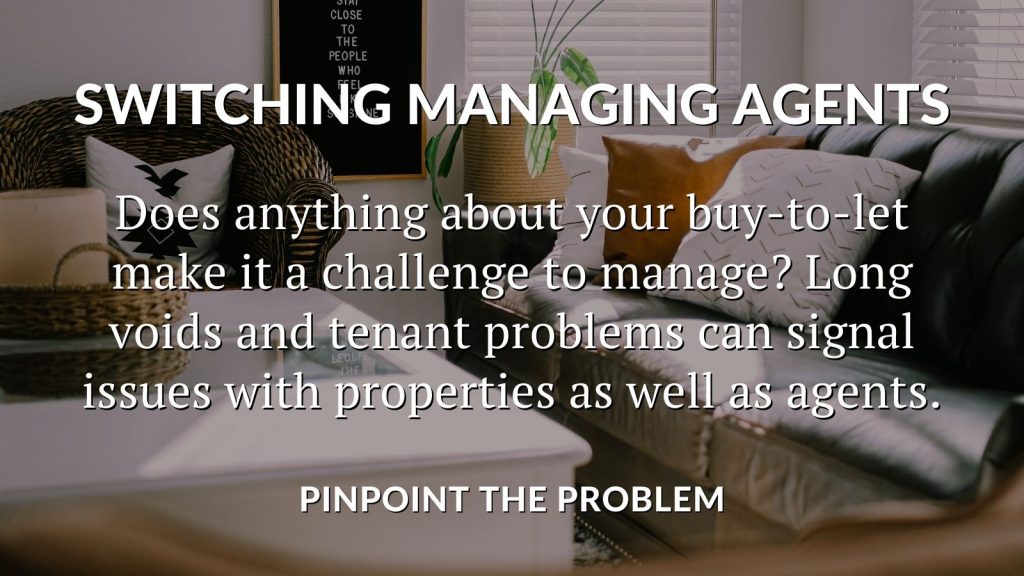
At the very least, you deserve a polite and professional approach that keeps you informed, so when it’s a clear-cut case of poor service, inadequate communication or an unpleasant attitude, switching to a new agent could restart your entire experience.
But it’s also worth exploring whether anything about your buy-to-let is making it a challenge to manage. Long void periods, low income and difficulties with tenants can signal an issue with a property as well as an agent.
A well-maintained rental home will give you more income, higher occupancy rates and the best tenants around, so a good first step is to look at whether your property is a compelling option, or needs some attention.
Is there a misunderstanding between you and your agent around the standards you wish to maintain? Do they feel restricted around keeping your property in good repair? Or are they falling short in following your instructions to provide a high-quality home?
Answering these questions will help you move forward with clarity and certainty.
CHOOSE YOUR NEW AGENT
To save repeating your previous experience, use your disappointments with your current letting agent to ask how a new company would handle similar situations.
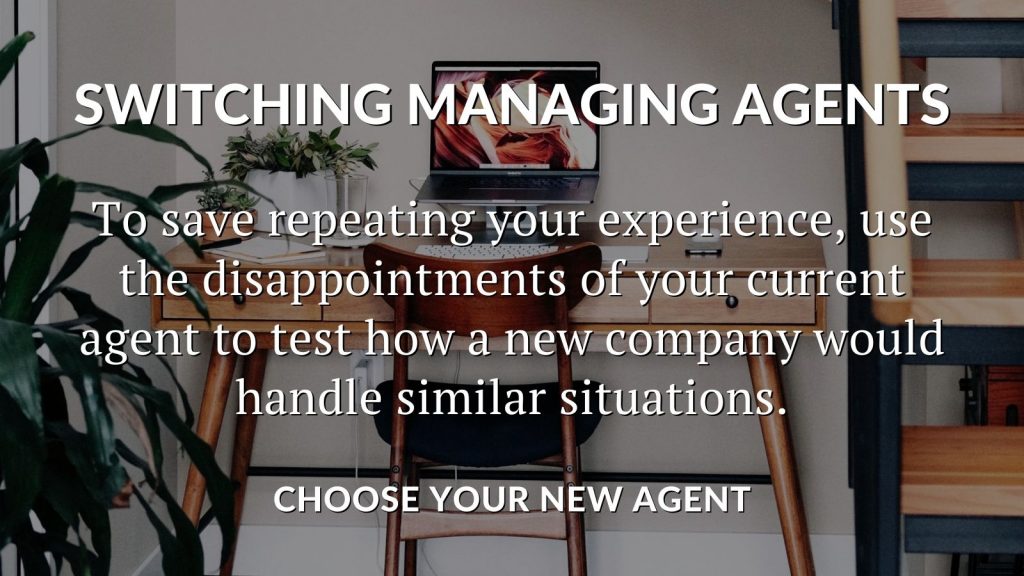
Try these five pointers on how to make your choice easier:
- Use an agent close to your buy-to-let for more responsiveness around viewings, maintenance, emergencies and repairs.
- Speak to the person who’ll be managing your property to see if you’re happy with them looking after your investment.
- Try a secret shopping exercise to see how each agent deals with tenants and enquiries: do they talk enthusiastically and knowledgeably about the home you enquired about, or is the experience less than inspiring?
- Get specific service standards and commitments around communication, routine inspections and transfer of rent.
- Look to the future: an agent’s profile, marketing and referencing procedures will give you valuable clues around the quality of tenants they attract.
For more detailed guidance, take a look at our blog on choosing the best letting agent https://lavelles.ie/category/blog/.
Now you’re all set to start your new partnership.
SERVE YOUR OLD AGENT NOTICE
You don’t need to wait for a tenancy to end to switch managing agents, but you must check your agreement for notice periods or outstanding obligations.
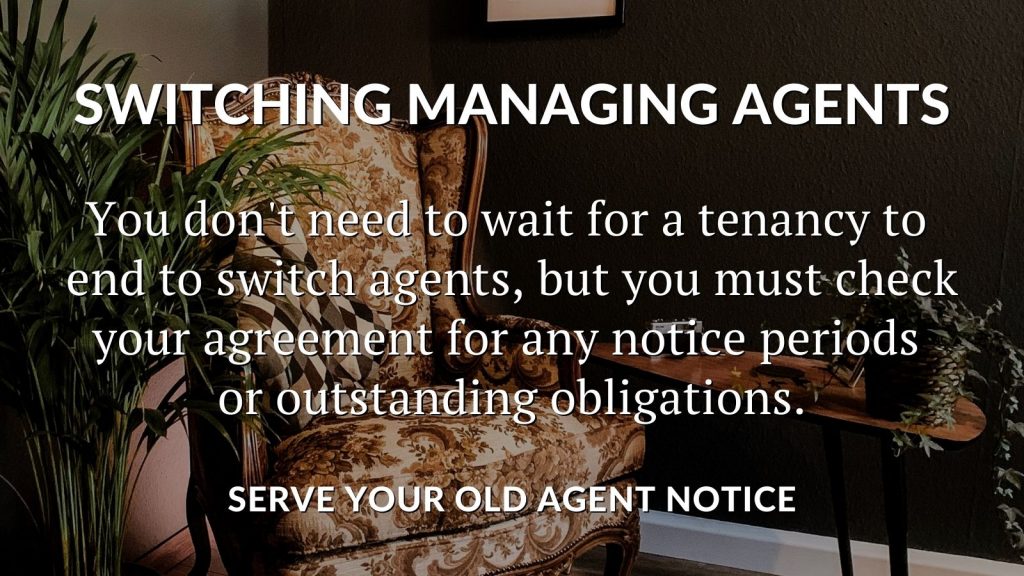
Make sure to serve notice to your agent in writing (by letter or email) and to get written confirmation from them over termination dates and any fees due to avoid disputes later on.
If you pay your current agent’s tenant-finding fee in monthly instalments, the remainder will most likely become due to end your contract.
Consumer protections cover most private landlords against unfair termination clauses, so don’t lose heart if the penalty for switching agents appears too much trouble at first. Ask us for advice and how to proceed if you’re unsure of your approach.
When it’s clear that your agent hasn’t met their contractual obligations – examples include failing to carry out routine inspections, delaying rent payments and not dealing with reported problems – you have the right to cancel your agreement, regardless of its terms.
PUT YOUR TENANTS AT EASE
As soon as you’ve given notice to your current agent and instructed a new one, it’s time to inform your tenants. Depending on their experience of living at your property, they may see the change as a blessed relief, or a cause for concern.
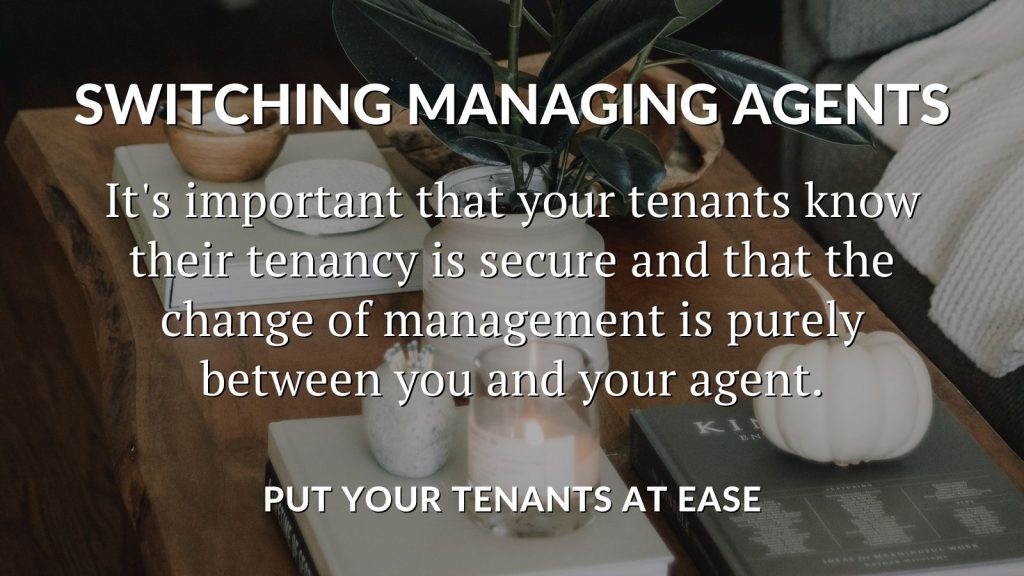
You should provide written confirmation of the agent you’re switching to, along with the date when the change will take effect and, of course, the new bank details for paying the rent. Your new agent can handle all of this if you prefer not to have any direct contact.
Either way, it’s important that your tenants know the change of management is purely between you and your letting agent, and that their tenancy is secure. Uncertainty can lead people to look for a new home, but it’s easily avoided.
Now is also the perfect opportunity to find out if anything needs repairing or replacing at your property. Perhaps your tenants reported an issue that’s still outstanding, and you can reassure them of your commitment to giving them a home to enjoy.
DOCUMENTS, DEPOSIT & KEYS
Your new agent will usually collect the keys from your old one, unless they are a long way from each other when your keys may need to be sent by registered post. If that’s the case, make sure the address of your property doesn’t find its way into the envelope.
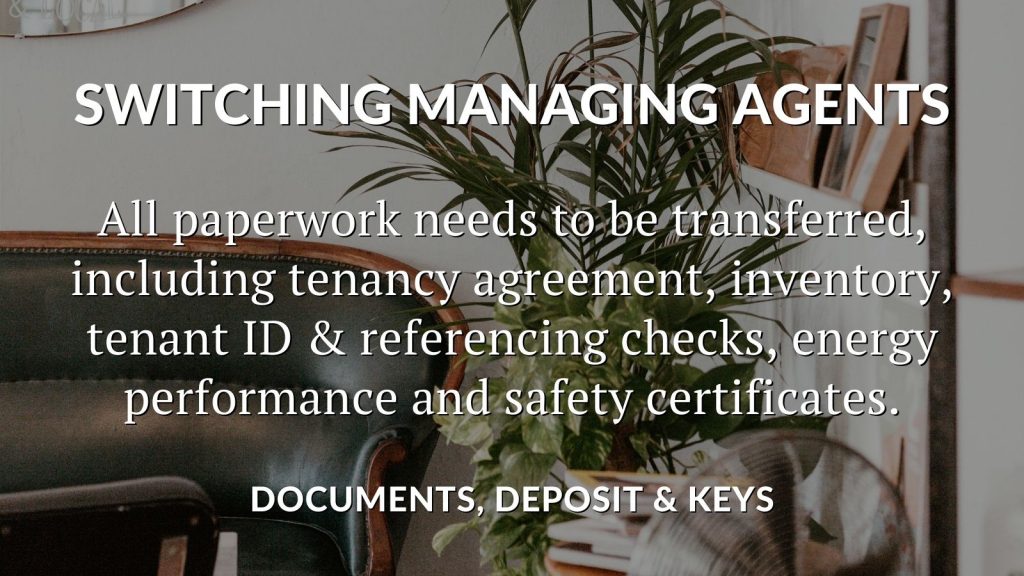
All paperwork (in digital or physical form) also needs to be transferred, including:
- tenancy agreement
- inventory
- tenant ID & referencing checks
- energy performance and safety certificates
For any of these sent through the post, have them sent separately from your keys.
Finally, where your existing agent holds your tenant’s security deposit, this needs to be transferred to your new managing agent.
FINAL WORDS
There’s no need to continue with your current letting agent if you’re disappointed with the service you’re receiving. You can legally switch the management of your buy-to-let whenever you wish, regardless of whether your property is vacant or occupied, and your new agent can handle most of the transfer work for you.
If you’re a landlord with a rental property in County Louthand you’d like to talk about switching to a new letting agent, why not get in touch to see if we’re a good fit? Call for a chat on 042 933 2482 or email us at info@lavelles.ie- we’d love to show you how we can manage your investment and help you switch agents with ease.
PRETTY VACANT: HOW TO STYLE YOUR BUY-TO-LET WITHOUT USING FURNITURE

Empty rooms can look a bit sad, and there are plenty of uninviting photographs out there of vacant buy-to-lets. It’s a constant challenge for landlords and letting agents when the demand from tenants is for unfurnished property, but when homes never look their best when they’re empty.
With no comfy couches or well-dressed beds to draw someone’s attention, your property needs to work harder to secure the best tenant and the highest rent. The good news is that with surprisingly little time and expense, you can turn empty rooms into welcoming spaces without buying any furniture.
By giving your buy-to-let a few clever styling touches, you can improve its visibility, increase its popularity and maximise its income and performance. More than that, by reducing the potential for wear and tear and keeping your tenants for longer, you’ll minimise changeovers, void periods and tedious admin.
Whether you’re in the middle of a purchase, halfway through renovating or simply between tenancies, follow our tips to give your empty buy-to-let all it needs to stand head and shoulders above the competition.
If you’re a landlord with a rental property in County Louth, we’re here to help you get it looking the part. Call for a chat on 042 933 2482 or send us a message at info@lavelles.ie for some expert input.
LIGHTBULB MOMENTS
As well as leaving everyone looking positively ill, cold lighting makes rooms look about as luxurious as a hospital corridor, but it’s incredibly cheap to put right.
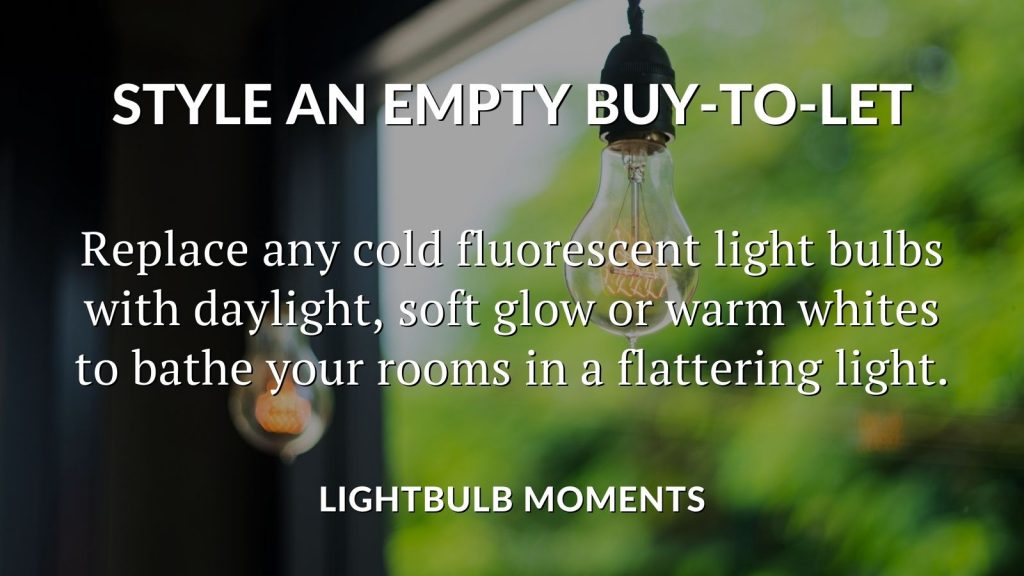
Early energy-saving spiral bulbs are prime culprits with their blue-tinged fluorescent glare, but newer LEDs with a high CRI score (Colour Rendering Index) emit a natural-looking light as if coming from the sun. The bulbs are readily available at IKEA, Amazon and DIY stores, and they make a massive difference to a potential tenant’s viewing experience.
You could even go one step further in living rooms or bedrooms with vintage-looking bulbs where the yellow filaments cast a cosy, soft and flattering glow.
In the mood for an easy luxury upgrade? Because of their height at waist or shoulder level, light switches are an unmissable feature on walls: replacing standard white plastic casings with brushed steel designer faceplates is an easy job with a sleek and stylish impact.
GET A HANDLE ON THINGS
Whenever someone opens a door or a cupboard, the handle is a tactile and visual reminder of sophisticated accessorising or, as the case may be, not.
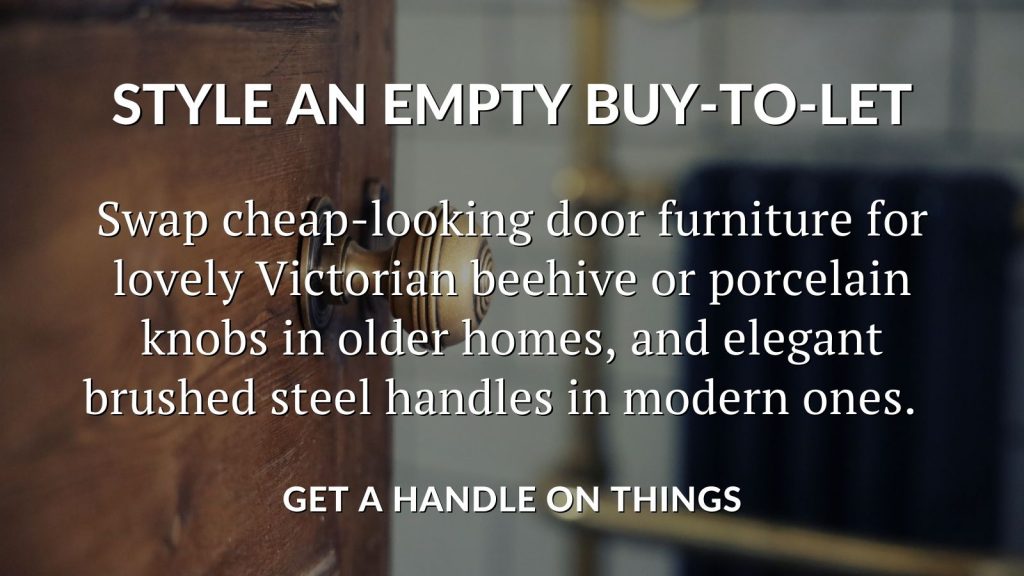
Having cheap-looking and feeling door handles detracts from any home’s appearance, but it’s easy to turn a negative impression into a positive one. In older homes, lovely Victorian beehive or porcelain knobs make great close-up shots and talking points on viewings, while modern brushed steel handles deal a welcome blow to brass-effect offenders from the 80s and 90s.
Kitchen cupboards also get an instant lift with new hardware, and you’ll find a whole world of knobs, bar handles and flush-mounted pulls in every style and finish that will easily cover any previous holes and look super-smart into the bargain.
Bonus points for metal hooks, not just for coats and scarves in the hall, but for towels and robes in the bathroom and mops and brooms in the kitchen. They look a whole lot better and last a whole lot longer than plastic stick-ons, and there’ll be no more ugly ovals of gluey residue on your doors or tiles!
TREAT YOUR WINDOWS
One of the most effective ways to enhance an empty room is to style the windows.
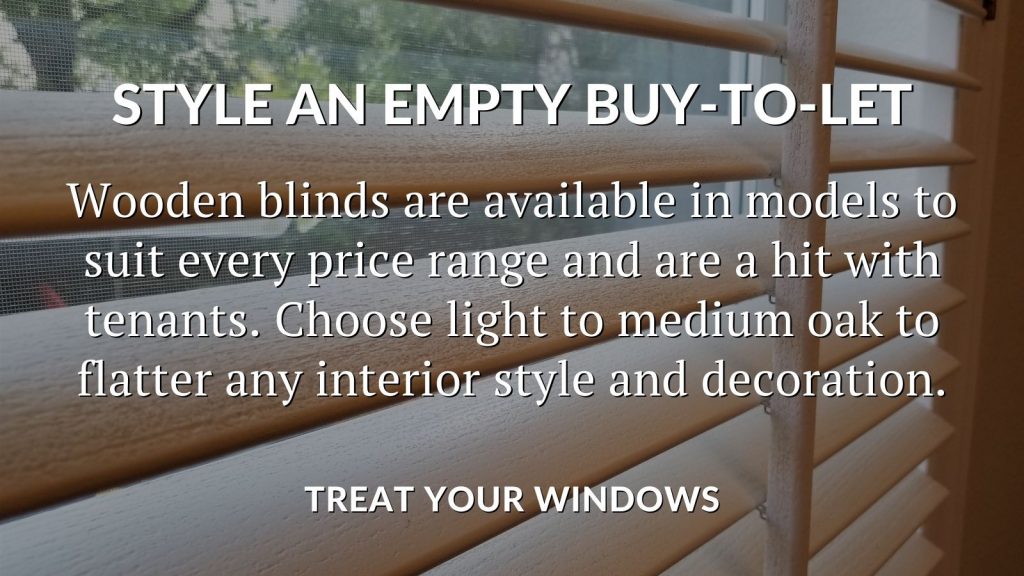
As well as looking great in photos and on viewings, wooden Venetian blinds are available in models to suit every price range and are popular among tenants. Choose a light to medium oak finish to flatter any interior style and decoration.
Whether it’s sunlight filtering through the open slats and casting cinematic shadows, or the warmth of natural timber when they’re closed at night, wooden blinds look great in both modern and traditional homes. And because they work in every room, from living spaces and bedrooms to kitchens and bathrooms, they provide a stylish continuity that suggests a professional landlord who knows what’s important to tenants.
Blinds are also a smart purchase. By having permanent window treatments, you’ll remove the need for every subsequent tenant to drill new holes for their blinds or curtain poles, meaning your walls and woodwork will take less of a beating.
FIND A PLACE TO SHINE
Reflective surfaces increase natural light levels and help rooms to feel larger, cleaner and more luxurious.
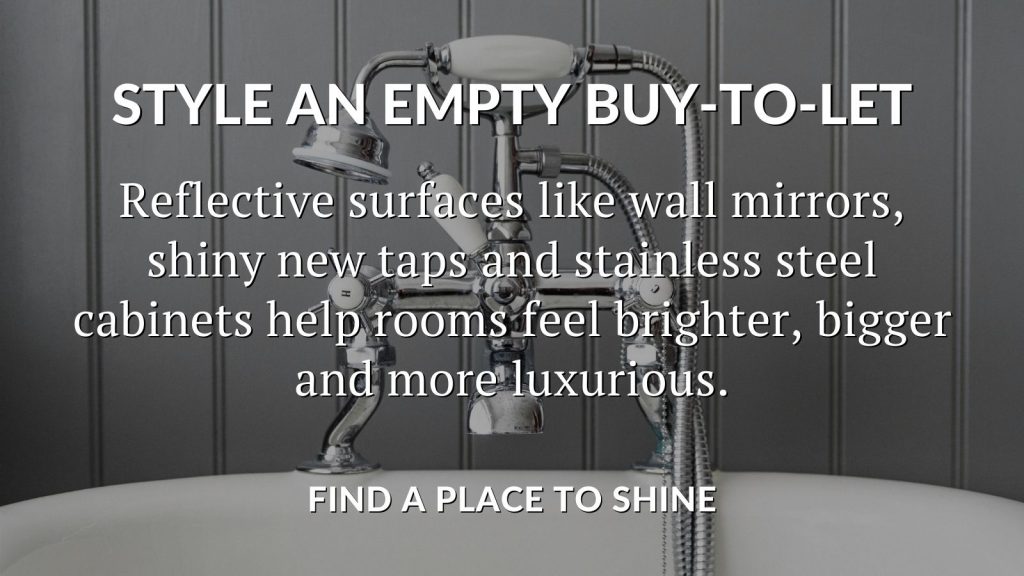
When taps and showerheads lose their sparkle, they drag everything down with them, making bathrooms and kitchens look dowdy, even when the other fittings are perfectly fine. Sometimes it’s a simple matter of good old elbow grease with some vinegar and water; otherwise, find good-quality replacements and watch their gleaming metal catch the light and elevate the surroundings, causing your viewers to cry out: “Ooh, nice taps!”
Staying in the bathroom, a mirrored stainless-steel cabinet above the basin is both practical and stylish. Available everywhere from Argos and Amazon to specialist suppliers, they combine somewhere to get ready for the world with valuable storage space for hiding lotions and potions. It also means your tenants won’t have to drill into your tiles, making their lives more enjoyable while removing the potential for damage.
Mirrors can also improve natural light levels and brighten areas that struggle, particularly internal hallways and landings. More than that, they add to the sense of space and flow, giving tantalising glimpses of what’s to come.
HIT THE RIGHT TONE
There’s no hiding tired, scuffed paintwork or dreary colours when we’re out showing potential tenants around empty homes.
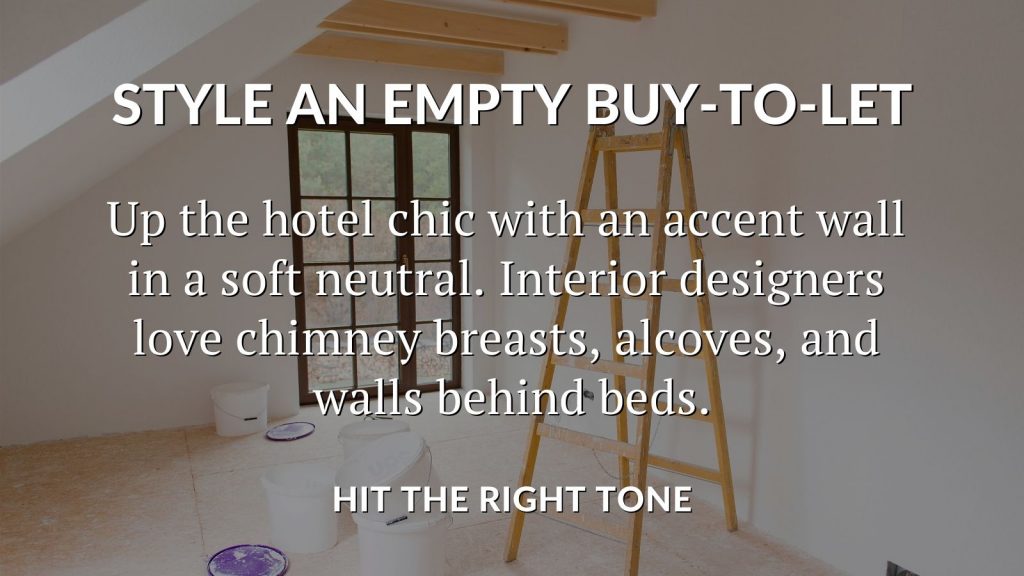
Fresh paint makes a home feel like new. But more than that, it makes rooms feel more expensive, more loved and more inviting.
Welcoming and bright are the qualities to aim for so that whatever the personal tastes and furniture style of your tenants, your walls will make the perfect backdrop.
Warm whites go with anything without the starkness of pure brilliant white, and you can ramp up the glamour with an accent wall in a soft neutral like Nordic grey. Favourites among interior designers are chimney breasts, alcoves, and, for a dash of hotel chic, walls behind beds.
Final words
It doesn’t take much to transform an empty home into a stylish and inviting future place to live. By using our tips, you’ll stand out from the crowd, attract the best tenants and keep them for longer, meaning fewer vacant days and an increased yield.
For some expert advice on getting your buy-to-let property looking just right, why not get in touch? We help landlords every day in County Louth to increase the popularity and performance of their rental portfolio, and we’d love to help you too. Call us on 042 933 2482 or drop us a line at info@lavelles.ie today.
GROWTH OR YIELD: WHICH BUY-TO-LET STRATEGY IS RIGHT FOR YOU?

“At least one in six people on The Sunday Times Rich List owes their wealth to property or the world of home ownership in some way”. Those are the words of Robert Watts, the man who compiles The Sunday Times Rich List.
Building a successful lettings portfolio is an exciting route to financial freedom, and picking a direction for your buy-to-let business ultimately comes down to two choices: capital growth or rental yield.
When it comes to choosing between them, you’ll find strong proponents of both whenever you ask the question. For some, capital growth is the be-all and end-all of being a landlord, while others extol the benefits of immediate income and higher yields. You’ll also find many successful landlords operating in each camp, with some even managing to combine both strategies.
Comfortable retirement, financial freedom, a change of career, supporting children, expanding a business, earning passive income and being your own boss are all motivators for becoming a landlord. Whatever your goals, building a sustainable portfolio of buy-to-let homes can make them possible.
Whether you’re looking to increase the size of your lettings portfolio, add a second strategy to your current one, or even if you’re just about to go looking for your first buy-to-let investment, this week’s blog has something for you.
If you’d prefer to talk in person about the market for rental property in County Louth, call us for a chat on 042 933 2482 or email us at info@lavelles.ie to get all your questions answered.
KNOW YOUR BUYING POWER
The amount of your own money that you can – or are willing to – put into buying a rental property may well dictate your strategy.

To minimise your capital outlay, you’ll need to secure a higher loan-to-value mortgage. Buy-to-let mortgages are generally available up to 75% of a property’s open market value, as long as the rental yield is high enough: most lenders require the monthly rental income to be at least 125% of the monthly mortgage payment.
While gross rental yields are the ones you’ll see widely advertised, the net yield is the only number that matters and may be significantly lower. Be sure to factor in all the ongoing costs like insurance, service charges, maintenance and management fees.
With deeper pockets, your options are wider. Capital growth tends to come from more expensive locations and more luxurious homes, where sales prices are higher but rental yields are lower. You could well need to fund 50% of the purchase price yourself to satisfy the income-mortgage payment ratio of lenders, but you’ll also find loans at lower interest rates.
SET YOUR PRIORITIES
In the most simplistic terms, capital growth concentrates on investment, while yield focuses on income. The two can become blurred when you adopt a dual strategy, and it’s not as cut and dried as that for every landlord, but it’s a place to start.

Why choose capital growth?
Let’s look at the landlords whose portfolios we manage. Those interested primarily in capital growth operate on a ‘buy and hold’ basis, intending to keep a property for at least five years, possibly ten and maybe even indefinitely.
You might call it a set-it-and-forget-it approach: a bit like a long-term savings account but with a far better return. Capital growth strategies often underpin longer-term plans like supporting children onto the property ladder or building financial security for retirement.
As the value of the property increases, you can release the built-up equity to fund the deposits on further buy-to-let purchases without using your own money.
Why choose rental yield?
Landlords who prioritise yield tend to be less fixed around how long they keep a home. They stay open to opportunities and may be open to selling if we had a potential buyer who we thought would be perfect. When kitchens, bathrooms and heating need replacing, a landlord might prefer to take their money out and buy a more up-to-date property instead of having a vacant period while they carry out renovation works.
Yield strategies produce an immediate income stream that can supplement an existing salary, or be the catalyst for switching careers altogether, perhaps to become a full-time landlord. In short, they can facilitate an immediate lifestyle change.
Concentrating on lower-value homes makes entry to the market more accessible and is how many landlords get started before switching to a capital growth strategy later on.
A CAPITAL GROWTH STRATEGY
The most prudent and reliable course is to go where the money is. Look for central and prime locations with a high concentration of high-earning professionals, often from the corporate worlds like banking, insurance, medicine and law, as well as the tech and creative industries.
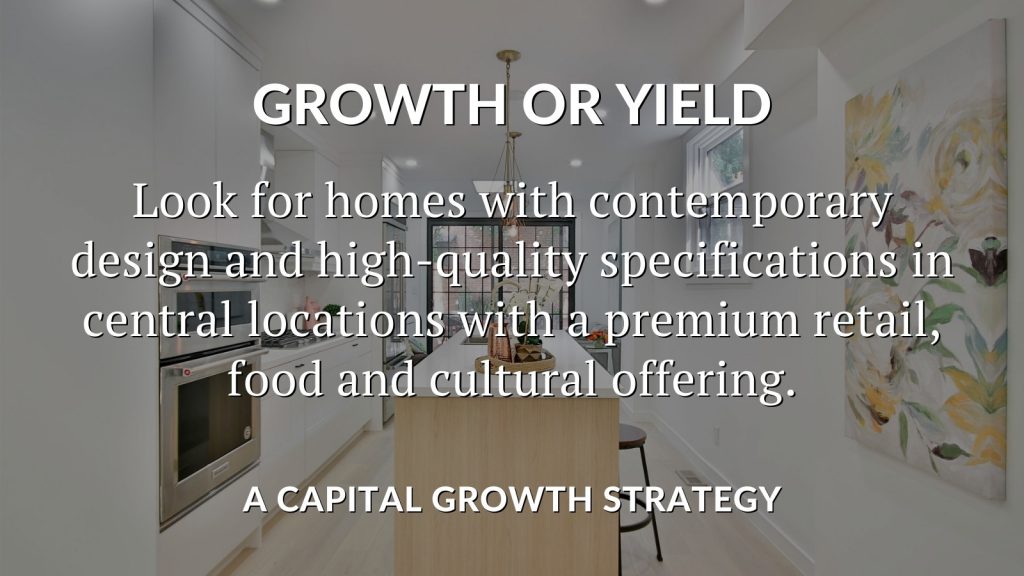
Tenants at the top end of the rental market respond to high-quality property that reflects their aspirations, along with a lifestyle that reflects their spending power. They seek homes with an emphasis on contemporary design and luxury specifications, with a premium retail, restaurant and cultural offering nearby.
The catchment areas of high-performing schools are also excellent targets as there are usually more hopeful parents looking for homes than there are properties for sale. However, you’ll face fierce competition from local families, which may send the price higher than you’re willing to go.
If you can find a fixer-upper in a prime location, you’ll benefit from an instant uplift in the sales value and may even be able to increase the level of accommodation. There’s a reason for the adage of “always buy the worst house on the street”,but you won’t be the only person trying.
A RENTAL YIELD STRATEGY
Less central or prime locations have lower property prices, but they will attract good-quality tenants when they offer easy connectivity and an enjoyable lifestyle.
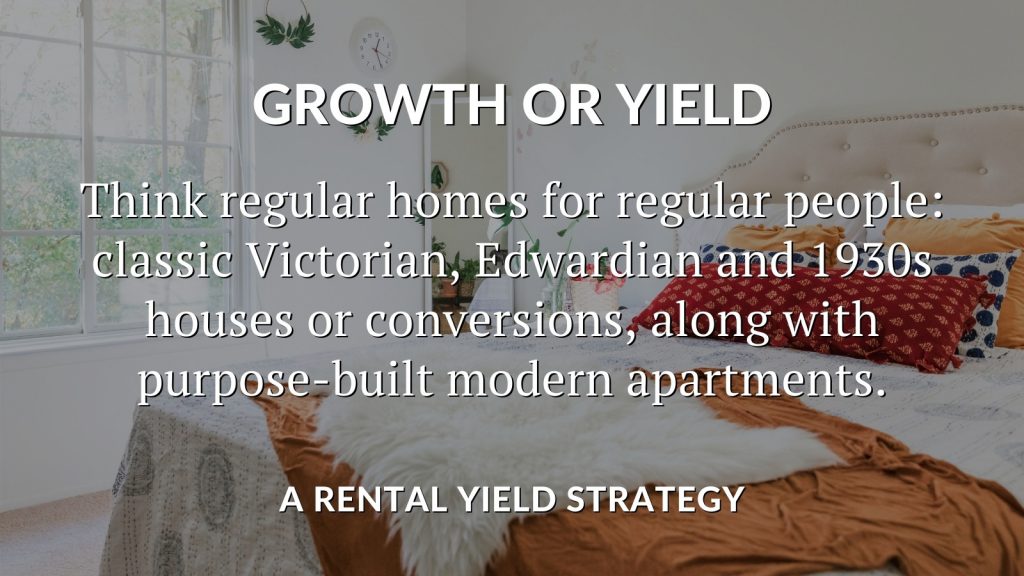
Perhaps the best way to describe properties that fit a yield strategy is regular homes for regular people: think classic Victorian, Edwardian and 1930s houses or conversions, along with purpose-built apartments from the 1960s until now. The closer to a high street the better, particularly one with a choice of coffee places, pubs and good local shops.
To give yourself the best chance of moving tenants in swiftly after completion, look for homes with minimal works required to have them ready for occupation.
Remember that just because a property is cheaper to buy doesn’t mean it’s cheaper to own and maintain. Older homes are consistently popular because of their character, but they require looking after, so check around thoroughly for the prospect of upcoming surprises.
A DUAL STRATEGY
Finding a formula that will deliver strong capital growth along with a strong rental yield is the holy grail of being a landlord. With a bit of research, it’s entirely possible to buy low, rent high and watch the value of your property increase.
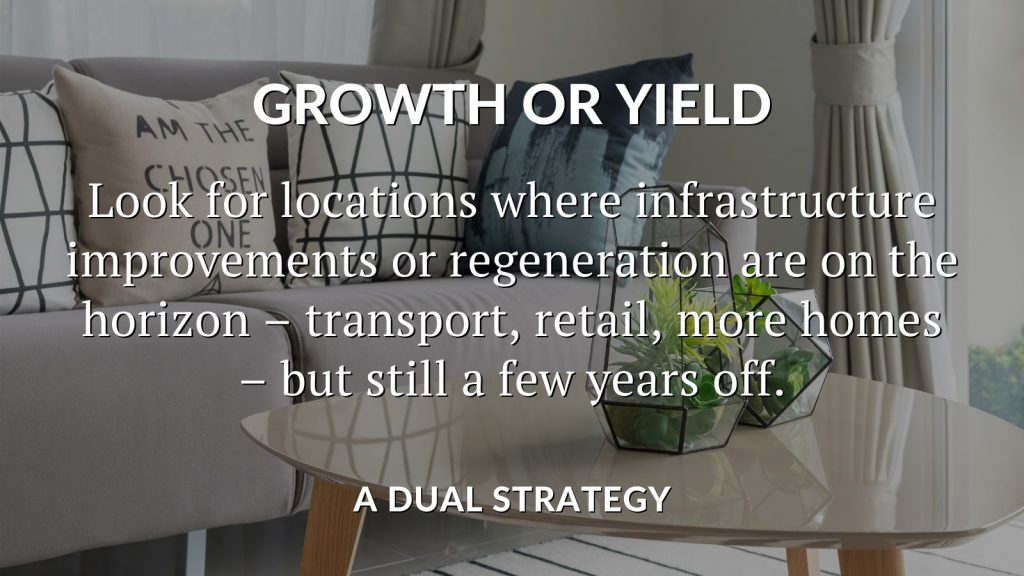
Look for locations where infrastructure improvements or regeneration are on the horizon, but still a few years off. When the local connectivity or lifestyle get earmarked for attention – faster (or new) transport connections; an improved retail and leisure offering; even better places to live – there’s usually an opportunity to get in early at subdued prices before they catch up with more developed areas.
Owner-occupiers prefer to buy in areas with established amenities, but tenants are more flexible in where they live when they can get a better home for their budget. This presents an opportunity for investors.
Be sure to balance your decision with a reality check. If you’re buying into a large new development, many similar homes may become available simultaneously as different landlords complete their purchases. Choice for tenants means competition for landlords, which usually translates to a downward impact on rents in the short term until the development is fully occupied.
Final words
There are many ways to be a successful landlord, and there’s no one-size-fits-all strategy. Talking things through with a letting agent where you’re looking to invest will give you a clear picture of the local market so you can make an informed decision about the best approach for you.
We can help you identify the locations County Louth that suit capital growth or rental yield strategies, so why not get in touch? Call us on 042 933 2482 or drop us a line at info@lavelles.ie – we’re here to help you build a sustainable portfolio and a solid financial future.
SUMMER VIEWINGS: STAND OUT FROM THE CROWD IN THE BEST SEASON FOR SELLING

Summer is upon us, and with it comes the best time of the year to sell your home (and to be an estate agent!).
Blue skies, warm temperatures and nature in bloom make photos look brilliant, and homes look their best, while the lighter nights fuel faster decisions with fewer viewings in the dark.
With so many positives, it’s no wonder that summer is the time of year when lots of people decide to sell. As more homes come on the market and the competition hots up with the weather, the name of the game is standing out from the crowd, instead of getting lost in it. In short, now is the time for your home to shine.
Summer is all about capturing the light, making the most of nature and creating connections between inside and out. Get those right with the help of this week’s blog, and you’ll be well on your way to finding your perfect buyer.
And if you’re already looking to sell your home this summer, we’d love to be part of your move. Call for a chat on 042 933 2482 or email info@lavelles.ie to tell us all about your plans.
FRONT OF HOUSE
Kerb appeal sets the tone for every viewing, creating that vital first impression when a buyer arrives outside.
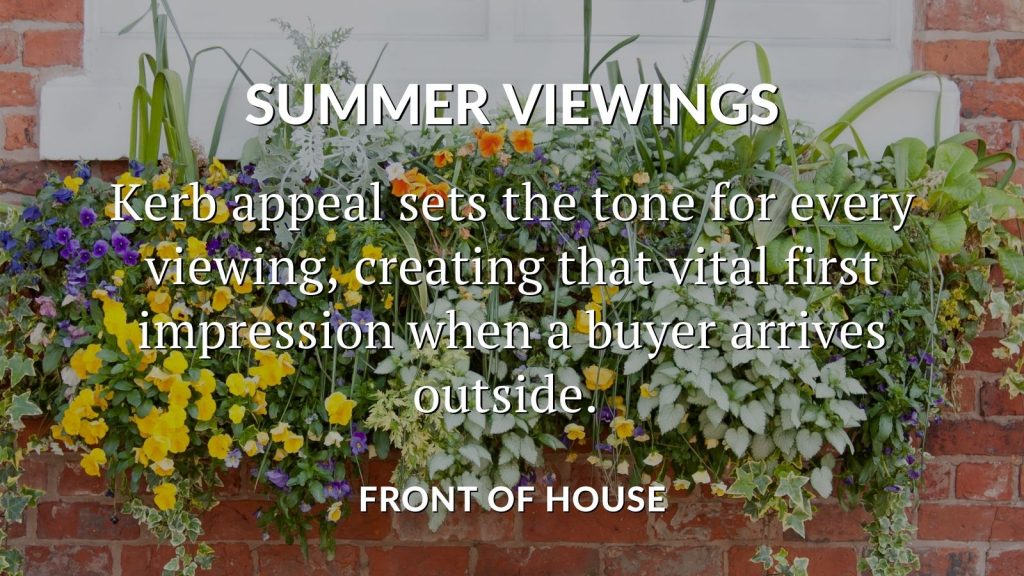
Back in 2017, a OnePoll survey found that 6 out of 10 potential buyers reject a house before they walk through the door, and that still rings true today: those first few moments are hugely influential. We can tell by the look on someone’s face whether they’re impressed or not as we step inside.
The sun highlights every detail when it shines on your home, making fresh paint glisten and say, “I am a home that is loved”. On the other hand, exterior maintenance often feels like more work and expense than is true; it can even make buyers wonder about problems that aren’t even there. Check for any flaking paintwork on the front door or windows, and for any water-stained render, then put them right.
Decoration is one thing, but accessorising is the sizzle that warms up your welcome. You can’t go wrong with seasonal flowers, whatever the age of your home: pots of petunias by the pathway; hanging baskets trailing with begonias by the front door; window boxes dripping with geraniums – they all look fantastic.
CATCH THE LIGHT
Do you know the saying “you only get one go at making a first impression”? Well, you actually get two, and walking into an entrance hall that’s flooded with light is an excellent follow-up to your kerb appeal: it can bolster positive thoughts, and rescue negative ones.

Leaving every interior door open will pull in natural light from every possible source: from the back, from the side and even from above. Open doors create a sense of flow, make your home feel bigger and are about as welcoming as it gets.
Clean windows capture the most daylight, so get them done every week if necessary. It’s extraordinary how much extra light comes in through polished panes: they elevate everything inside, and improve the view to the outside. Exposing as much glass as possible will maximise the results, so keep your curtains pulled right back and your blinds fully open.
For any room that needs some extra help, try these bright ideas:
- hanging a mirror to reflect light from the windows will give additional depth to a room, making it feel bigger and brighter in one fell swoop;
- a large and colourful canvass print can brighten up a room and change its tone/vibe in a five-minute job;
- even if you’re not up for complete redecoration, painting a single wall in a lighter colour can transform a room – pick a pale neutral that complements your decor;
- summer-toned textiles like cushions, throws and table runners soften the appearance of bulky furniture, while light-coloured rugs can revitalise a floor. Tip: go as big as you can.
KEEP ROOMS FRESH & COOL
Buyers will stay longer in your home – and like it more – when the temperature is comfortable. In the winter, it’s about cranking up the heat, but the summer is about escaping it.

Maintaining a gentle through-draft will keep the inside of your home cool and the air refreshed, so leave a couple of windows securely ajar, preferably facing opposite directions to encourage a natural airflow.
For any rooms that get the full sun during the day, keep curtains and blinds closed to keep out the heat. We’re always happy to arrive a few minutes early for viewings to open everything up and let the light in, then draw everything closed when we leave.
Plants are also your friend here – they lose water during transpiration, which helps purify the air and cool down a room. Not to mention they look great!
GO FOR GARDEN GLORY
Everyone is thinking about life outside in the summer: from Pimms on the terrace, to al fresco dining, to reading a book in a hammock.
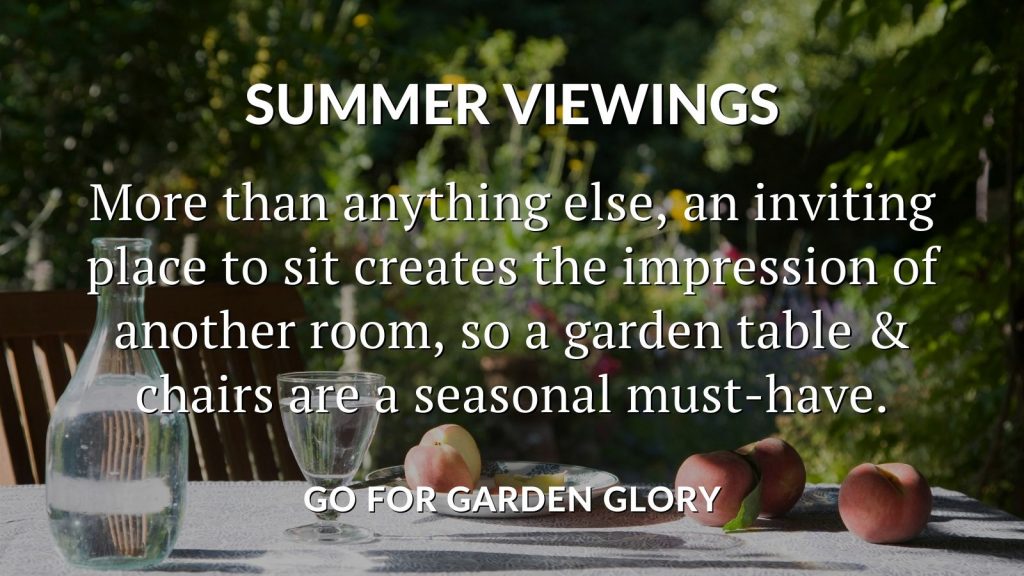
More than anything else, having an inviting place to sit is what creates the impression of another room, so whether it’s a small balcony or a large garden, a table and chairs are a seasonal must-have. If they feel a bit bare, textiles will come to your rescue again with seat cushions adding comfort to naked timber or metal.
You don’t have to be a gardening expert to inject some colour. Bare patios, decks and even lawns will liven up with a few pots of summer flowers, and a designer’s trick is to arrange them in threes.
For any children’s playthings, it’s not realistic to move a slide or trampoline whenever there’s a viewing, but you could locate them where they’re least in the way. For smaller toys, keep a crate or two handy for getting them easily in order, and then quickly back to playtime.
EXPECT EVENING APPOINTMENTS
With the longer days of summer, evening viewings become more popular and more productive.
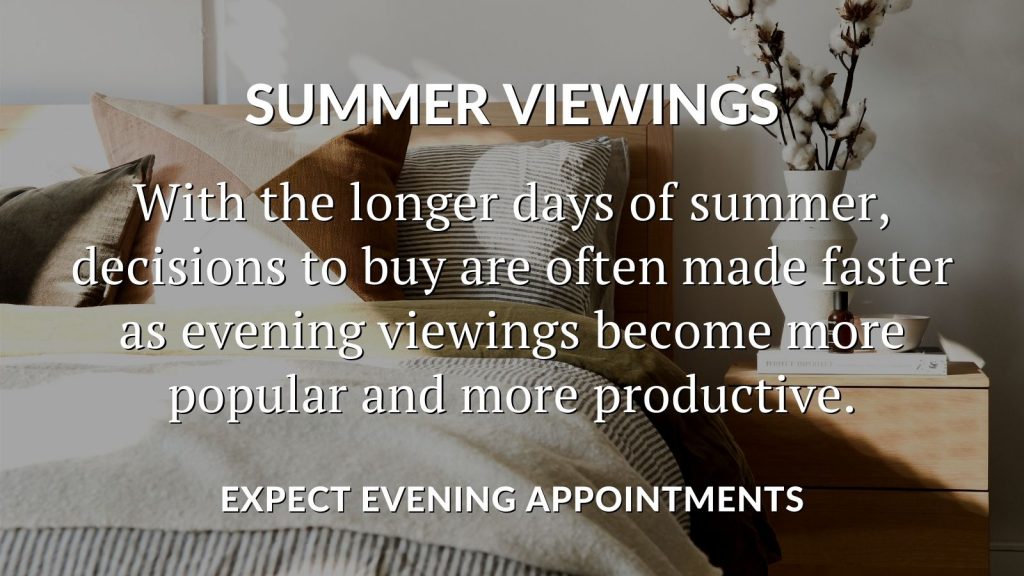
Decisions to buy are often made faster in the summer. With no need to come back in the day after a first viewing in the dark, buyers are more certain when they can see everything in the light, and when everything looks its best.
They’ll also hang around longer to savour the neighbourhood, rather than rush home in the cold, and we’ll recommend a favourite pub for them to drink in the local atmosphere.
If you’re planning on dinner outside after your viewers have left, set the table before they arrive to conjure up that al-fresco lifestyle.
And talking of leaving the house, it’s really worth having some options of where to go. Can you have flexible drop-ins with any family or friends living nearby, or playdates for the kids?
FINAL WORDS
With everything about the summer season on your side, it’s the perfect opportunity to sell your home when it looks its best.
We’re here to help you get the highest possible price for your home, so for tailor-made advice in getting your home ready for summer viewings, call for a chat on 042 933 2482 or drop us a line at info@lavelles.ie – let’s give your move a flying start.
HIRING CONTRACTORS: A LANDLORD’S GUIDE TO FINDING TRADESPEOPLE YOU CAN TRUST
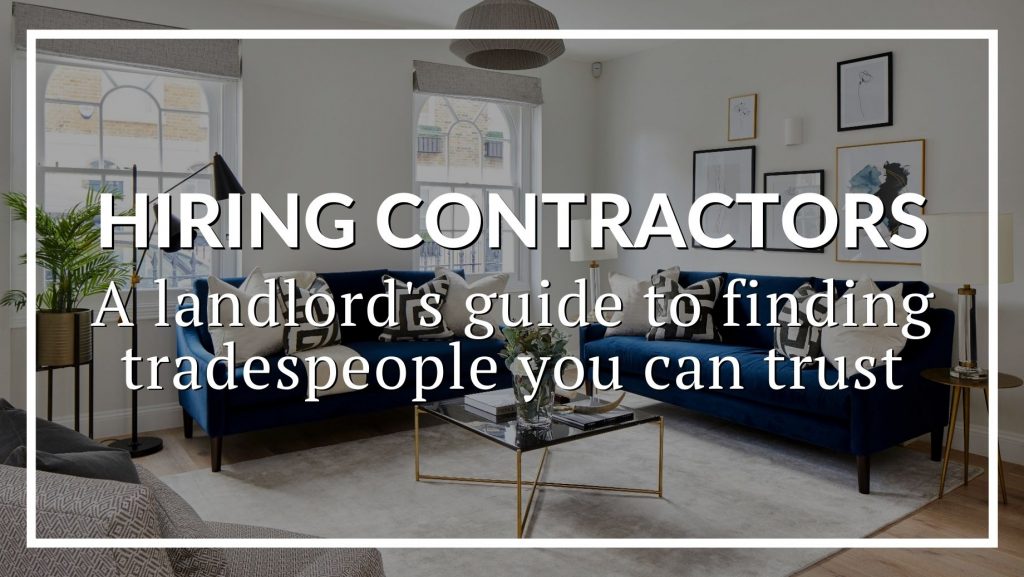
Whenever you ask someone if they know a good contractor, you’ll never be far from a tale of woe: the plumber who never turned up; the electrician who bodged the job; the builder who overcharged and left a huge mess.
It’s taken us many years to build a circle of reliable contractors, and we’ve had plenty of upsets along the way. Unfortunately, even the good ones go bad, get too busy, or simply disappear, so we keep our eggs in more than one basket to ensure we have a backup plan.
One thing that makes the life of a managing agent easier is that we look after multiple homes. Our calls take priority because of the amount of work we provide through regular maintenance, compliance checks, general repairs and, of course, the odd emergency.
It can be more challenging to build close relationships with contractors when you’re a landlord with a single rental property or a small portfolio, but with our checklist of tips, you’ll find it easier to spot the ones you can trust.
And if you’d rather someone else did all the legwork, why not ask us to take care of everything for you? Call us on 042 933 2482 or drop us a line at info@lavelles.ie to see if we’re a match.
BEGIN THE SEARCH NOW
Leaving it until the last minute to start hunting for a contractor is a recipe for anxiety and panic. That emergency or repair will never come at a convenient moment, and you’ll be rushing around against the clock to find someone you trust.
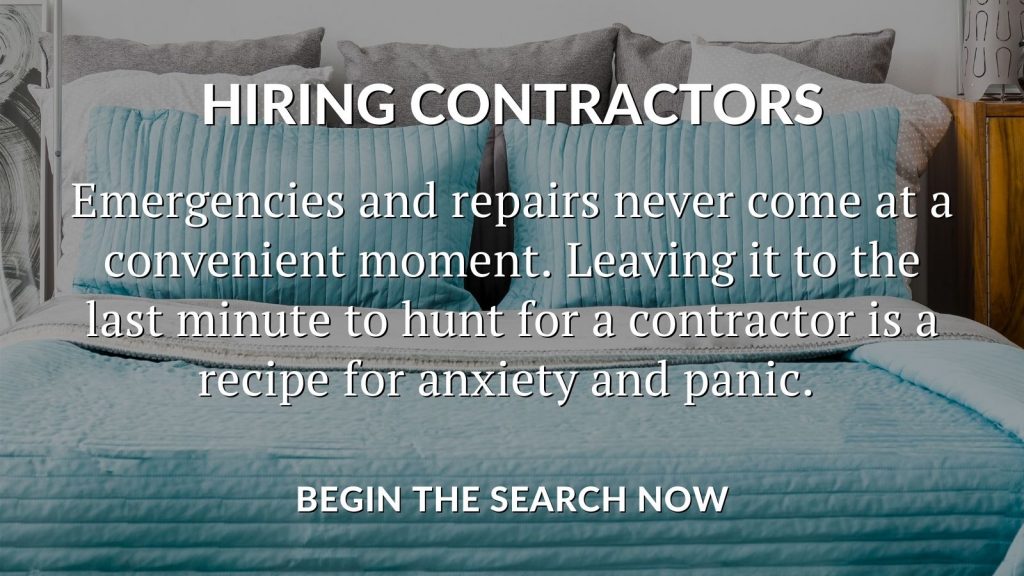
Having time on your side will give you the space to compare hourly rates to get an idea of what’s fair and what’s not. Try and find three of each type of contractor to get an average price and ask them whether they charge by the whole or part hour.
Some firms publish their prices online, but it’s always worth calling for an insight into their customer service and whether they answer the phone or call you back.
By having the numbers of a good plumber, electrician and handyman in your phone now, you’ll be well prepared in advance. Knowing who to call can be a real lifesaver in emergencies when your tenants expect a speedy solution.
ASK FOR RECOMMENDATIONS
You can’t beat a personal recommendation, as long as you can trust the source.
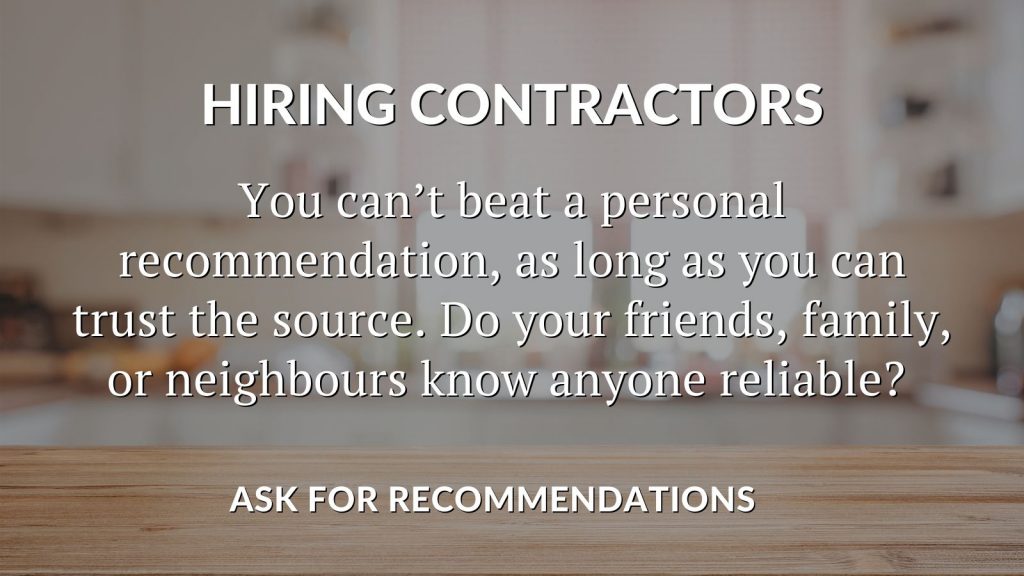
Do your friends, family, or neighbours know anyone reliable? Some might recommend their own friends, so check that they’ve experienced their work first-hand and aren’t just being supportive.
You could also see if any contractors you already know can recommend someone in another field. Perhaps your plumber met an electrician on a renovation project where they worked together.
If your rental property is far from where you live or have connections, it’s going to be more difficult. Your tenants might be willing to knock on your neighbours’ doors or drop notes through, but the onus is ultimately on you to fix the problem.
READ REVIEWS & ACCREDITATIONS
Companies generally only post the best remarks on their website, but review sites or Google can give you a fuller picture. Don’t judge by one bad review – everyone gets the odd one of those. Instead, check if the general story is a positive one.
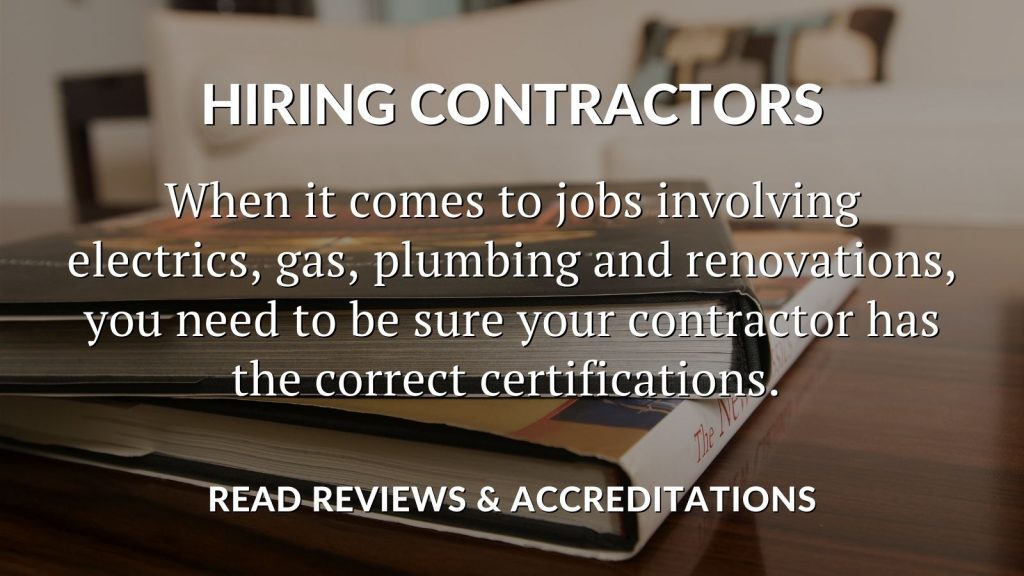
We all know a friendly local handyman who’s good for replacing a washer in a tap or fixing a loose door handle, but when it comes to jobs involving electrics, gas, plumbing and renovations, you need to be sure your contractor has the correct certifications.
If something goes wrong after you use an unqualified contractor, it’s you who’ll bear the responsibility and consequences, no matter how well-intended your efforts. We cannot stress enough that it’s really worth doing your homework.
RESEARCH RESPONSE TIMES
Every property requires ongoing maintenance, general repairs and safety compliance, so it’s good to know how far in advance you’ll generally need to book. Ask about average arrival times for regular office hours, weekends, and in the middle of the night.
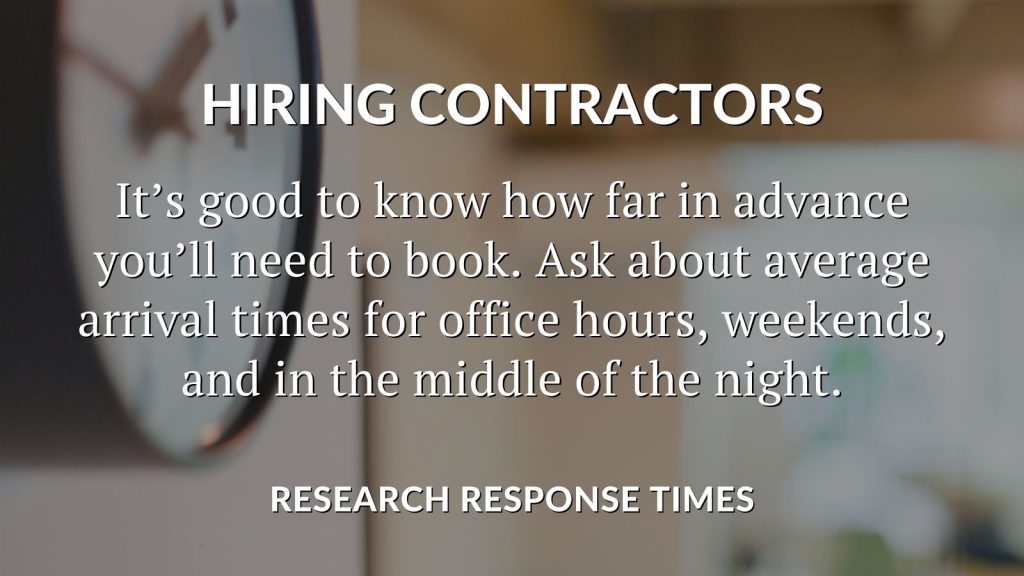
For non-urgent repairs, anything up to 72 hours is acceptable, but you may need to call further ahead for electrical and gas safety checks. As soon as you know the deal, put a note in your calendar a couple of weeks before any certificates expire to ensure you get a slot.
Direct Line Insurance carried out a survey of UK landlords and found that plumbers are the fastest emergency responders, with an average arrival time around 13 hours after an issue is reported. They’re followed by electricians at just under 18 hours, with gas and heating engineers coming in just short of 21 hours.
Many excellent contractors are sole traders, but no matter how wonderful they are, they might be busy when you call, so it’s worth having a couple of numbers. When there’s water coming in or a major electrical fault, the speed of response will be crucial.
SPOT THE ROGUES
It’s a big deal asking a stranger into your property to carry out work and repairs, so look for these tell-tale signs of traders to avoid.
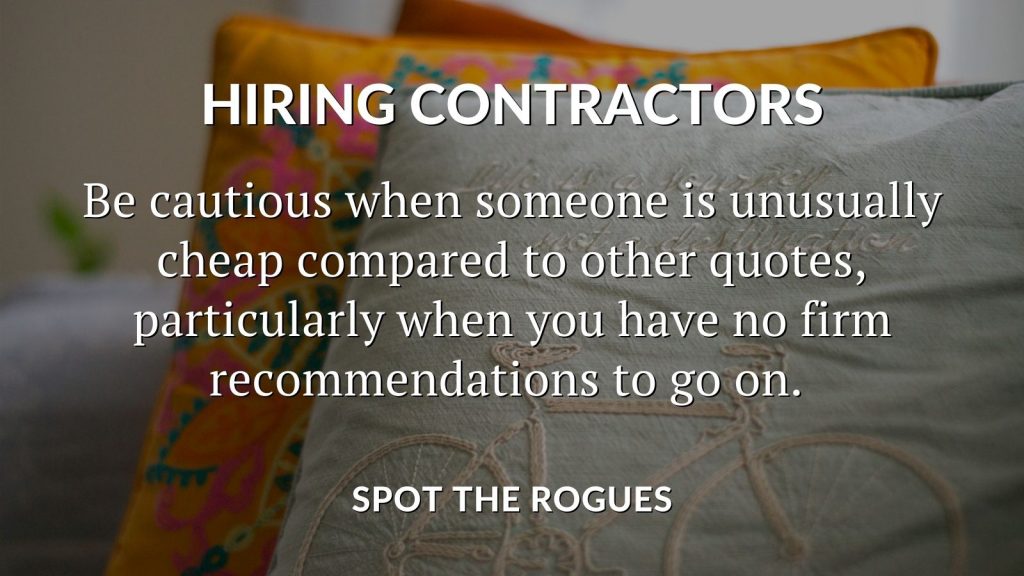
Suspiciously cheap
Good contractors are like gold dust. The best ones know their worth, and their work is worth the cost. Be cautious when someone is unusually cheap compared to other quotes, particularly if you have no firm recommendations to go on.
Cash only
The days of writing cheques and three-day bank transfers are long behind us. Now you can send money from your phone to another bank account in seconds, so there’s not much excuse for only taking cash.
Requesting full payment upfront
It’s normal for contractors to request a deposit to cover their time and any materials they may need to buy in advance, but you shouldn’t have to pay the total cost until the work is complete.
Flaky behaviour
Non-committal language, vagueness over price and failing to turn up at the agreed time are not the signs of a good contractor. If you get a bad feeling, go with your gut. There’s always another option.
FINAL WORDS
Building a trusted circle of contractors is no easy task: it takes time, and it takes work, but the peace of mind is priceless.
Of course, having a managing agent removes all of this work to give you a truly passive income. You’ll never have to deal with maintenance, compliance or repairs, and you’ll never get a call in the middle of the night. We have an emergency number for tenants to call and our very own little black book of contractors from years of trying, testing and sometimes tears.
If you’re a landlord with a rental property in County Louth, why not get in touch to see how we can look after you and your investment? Call us for a chat on 042 933 2482 or email us at info@lavelles.ie– we’d love to make your life easier.
NEGOTIATING A PRICE: DOES YOUR BUYER NEED TO FEEL THEY GOT A GOOD DEAL?
“I don’t want to give my home away” is a thought on the minds of many people when they first put their home up for sale. In fact, it’s one of the main concerns we address when recommending an asking price that gives you comfort and confidence.
There are some myths and misunderstandings around price negotiations and choosing the right tactics. If you add on a margin to deduct for buyers, will you lose interest by setting your asking price too high? And if you market your home at the price you’re looking to achieve, are you inviting low offers because everybody wants to feel they’ve got a discount?
Given that the average homeowner now only moves house every 15-20 years – roughly four times in a lifetime – it’s no wonder that price negotiations are unfamiliar territory. The economy, technology, buyer habits and property fashions are constantly changing, and the traditional rules of supply and demand also play their part.
You’re always welcome to get in touch about the property market in County Louth – we’re here to help on 042 933 2482 or at info@lavelles.ie. Meanwhile, this week’s article looks at how buyers really relate to the price of your home, and how the foundations for the best outcome are laid from the very start.
IT’S NOT ABOUT MONEY
Think back to when you first saw your current home and when you decided to buy it. Of all the things that made you fall in love and feel you could be happy there, how much came down to the price on the brochure? More than likely, it was something else that got you hooked.
When you put your home up for sale, the price is at the top of the list because it’s the only thing left for your home to give you. It’s been a loyal friend that’s served you well, but now it’s time to move on, and the price you achieve will affect the move you can make.
When you’re looking for a home to buy, your priorities are very different: size, number of rooms, location, condition, potential, noise, natural light, parking, the garden… Not to mention THAT feeling when you find The One.
Most buyers spend as much money as they can to get the best property they can; one that ticks all the boxes to give them the lifestyle they’re looking for. And while everyone does indeed love a bargain, it rarely makes the list of a buyer’s must-haves.
THE FEAR OF MISSING OUT
Nobody pays the asking price is a belief that pops up from time to time when we’re talking to homeowners about their pricing strategy, but it’s nowhere near as clear cut as that.
The Behavioural Science Unit at Barclays recently carried out a survey among homebuyers. They found that 30% didn’t even try to negotiate on the price, mainly for fear of losing a property, but with a dash of cultural embarrassment thrown in for good measure.
It makes perfect sense. When you fall in love with a home, an emotional attachment begins to form, and you do everything you can to secure it. You don’t walk away from the perfect property purely because you can’t get anything off the asking price. Your dream usually takes priority.
But, if 30% of buyers don’t feel they can or should negotiate, they’re unlikely to enquire about a home whose asking price appears above their budget. That’s a lot of people to lose.
DO YOU NEED A BUFFER?
The short answer is… maybe, but not necessarily. Sorry!
When lots of homes comparable to yours have sold nearby, they provide a clear price story backed up by plenty of local evidence. You know exactly who to target, exactly who will buy, and for exactly how much. There’s little need for negotiating margins.
But for a home that’s unlike anything around it, and where there’s some uncertainty over the eventual sale price, a buffer can be a useful tool. Perhaps for a unique architectural design, or where improvements have lifted the accommodation or specification well above neighbouring homes.
Timing can also be an influence. There’s lots of momentum right now, and you can read many tales of people paying well above the asking price. That’s because confidence is high and supply is low. When confidence dips or when competition increases, that’s when buyers may try to negotiate downwards (although not usually at the expense of losing a home they love).
Your asking price should always be a conversation between you and your agent that takes into account local sales, current market conditions, strategic price points and generating excitement. Of course, you also need to feel comfortable with your strategy, and we always look to tailor an approach to you.
PLAYING THE PORTALS
Almost every estate agent gets the majority of its new leads online, and most of those come through property portals like Rightmove or Zoopla. But the portals don’t simply display your home; they tell its story of being for sale.
When someone searches on a portal, they’re asked to choose a from and to price range to narrow the results. It’s transformed home hunting by removing any nuance, and we need to ensure that your asking price doesn’t leave you stranded. For instance, if you were likely to achieve £490,000 but you asked £505,000 (less than 3% higher), nobody searching up to £500,000 would see your home. You’d lose them all.
Instead, you risk increasing the time it takes to find a buyer by sitting among higher-value listings, making competitor homes look like better prospects, and advertising to people who expect more for their money.
With your home’s marketing timeline available to everyone, keeping that story short is crucial to getting the best price. A longer tale of price reductions and sitting on the shelf provides the opening to negotiate you down.
YOUR AGENT’S DUTIES
Buyers often ask questions like “what’s the lowest offer they’ll take?” and “what will the owners accept?” and here’s where your agent needs to be absolutely clear that they are acting for you, the seller. If all we did was to ask you how little you’d accept and put forward every low offer without even challenging it, we wouldn’t be doing our job.
Your agent is there to put you in the strongest possible negotiating position, and a big factor in that is how firm your agent holds. When they express doubts about your price or even suggest that you might take less, it turns the tables in favour of buyers.
So as your agent, it’s up to us to demonstrate that your home is worth the price you’re asking, which is why it’s so important that we recommend a credible starting point. It’s far easier to negotiate a higher offer when an asking price creates enthusiasm than when it creates an obstacle.
Final words
Your buyer doesn’t need to feel they’ve got a bargain; they need to feel confident that your home is the perfect choice for them and their future.
From our perspective, it’s you, the seller, who needs to feel you’ve got a good deal. That we’ve worked in your interests, found you the perfect buyer and got you the highest possible price.
Are you thinking of selling your home in County Louth? Call us for a chat on 042 933 2482 or drop us a line at info@lavelles.ie– expert advice is right here, and we’d love to be part of your move.
THE NICHE LANDLORD: PERFECTING A LETTINGS FORMULA FOR REPEATED SUCCESS
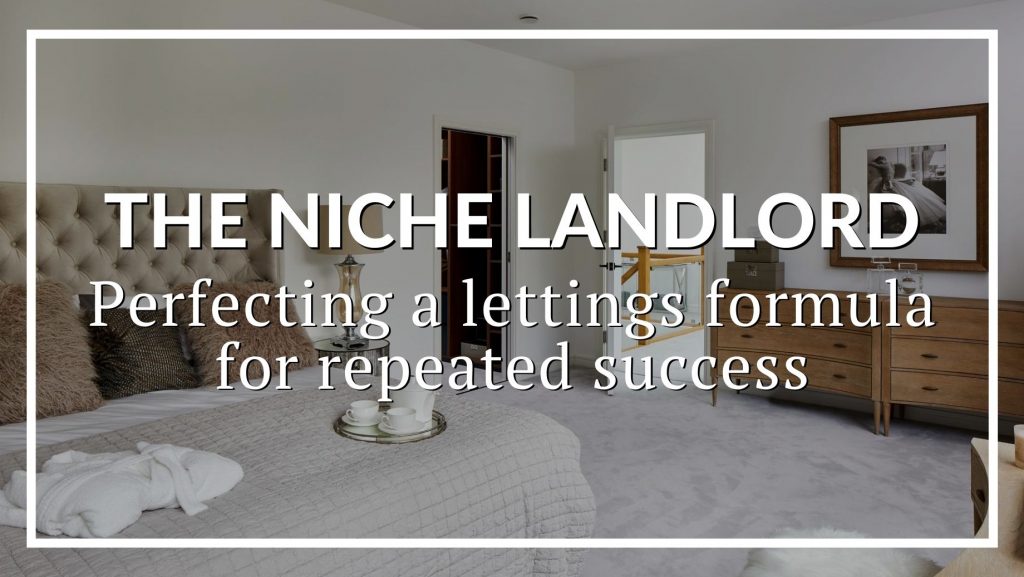
Specialise or diversify? That’s a big question for many landlords when it comes to expanding their portfolios, and if you look around Google long enough, you’ll find arguments for both.
You don’t have to have a niche. You could choose a wide spread of property types across multiple locations, but you’ll undoubtedly become more knowledgeable with some sort of specialty, and you’ll find it easier to manage your portfolio.
Of course, every property will give you a yield, whether it’s flats over shops, ex-local authority homes, swish new developments or classic traditional houses. There’s a demand for all of them, and we’re never going to run out of families, professional couples, sharers or single people to live in them. However, there’s definitely an edge in picking and perfecting your market.
Many of our landlords choose to specialise in a particular location and type of property because it makes their lives easier. By developing an expertise in their chosen marketplace, they know exactly what attracts the tenants they want, which gives them an enjoyable and profitable business.
You’re always welcome to get in touch for some friendly and expert advice anything buy-to-let – call us on 042 933 2482 or email us at info@lavelles.ie. Meanwhile, read on for the steps to building a niche portfolio and the benefits of having one.
PLAY TO YOUR PASSION
There’s nothing like being interested in something to make a good job of it.
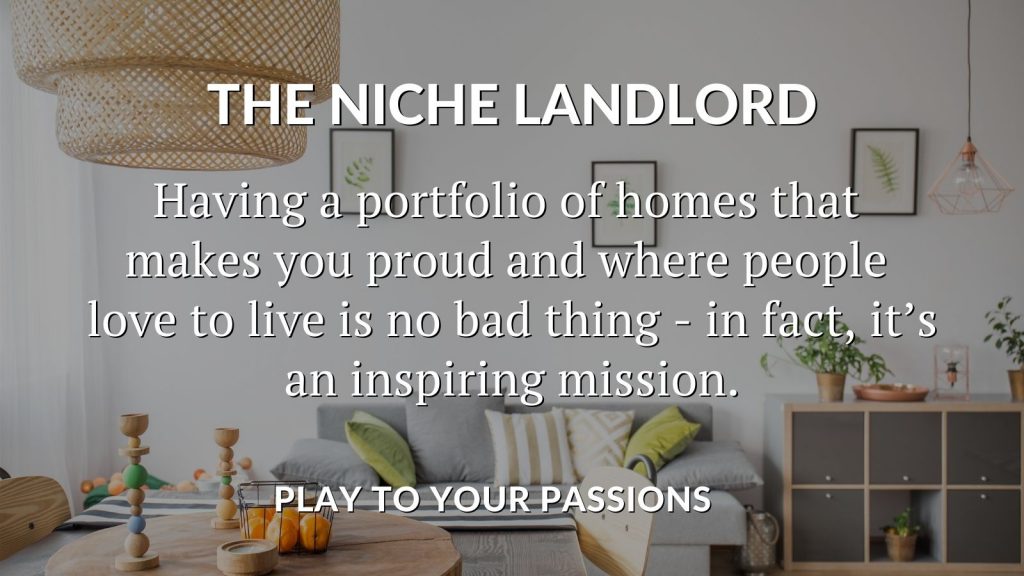
You’ll find plenty of content and sage advice around not making your buy-to-let business personal, but being a landlord – and, for that matter, being a managing agent – is nothing if not personal. Having a portfolio of homes that makes you proud and where people love to live is no bad thing – in fact, it’s an inspiring life.
Without a shadow of a doubt, the property you’ll enjoy owning the most is the sort of property you like. Maybe you’re familiar with a certain style from having lived in one, or from being an admirer of a particular period or design. Either way, enthusiasm on viewings often leads to seeing the full business potential of a home.
The trick is to avoid getting emotional. You won’t be living in the property, so it doesn’t need to fit your lifestyle or personal decorative tastes. Still, you can certainly bring personality to your homes to help them stand out from the crowd and attract your perfect tenant.
FINDING YOUR SPECIALTY
Every neighbourhood has more than one marketplace. Think about the stages of life people go through: singles wanting their own space; friends that want to share; couples moving in with each other; families growing up.
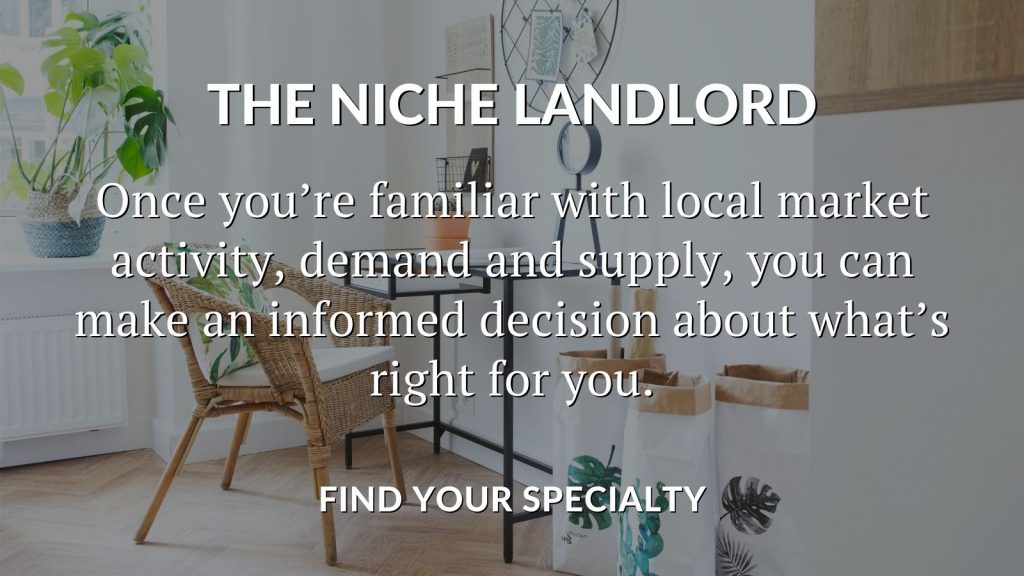
It would be a tough call to know about every type of home in every street, so a better place to start is by asking local letting agents about the different sectors of the market. Once you’re familiar with activity, demand and supply, you can make an informed decision about what’s right for you. Maybe there’s an untapped market just waiting for your talents.
Our landlords have different niches based around their own interests, preferences and experiences, as well as the local housing stock. Some put their trust in classic family homes; others favour small apartments and fewer occupants. Capital growth and prime locations can be a goal, as can the higher yields of cheaper streets. Knowing any of these well can give you valuable insight into beginning or expanding your portfolio comfortably and successfully.
DEEPEN YOUR EXPERTISE
For a rental property to be a success, it should reflect what people want and require minimal maintenance and repairs. By knowing your market and creating a durable home that encourages long-term tenancies, you’ll keep your income as constant and passive as possible.
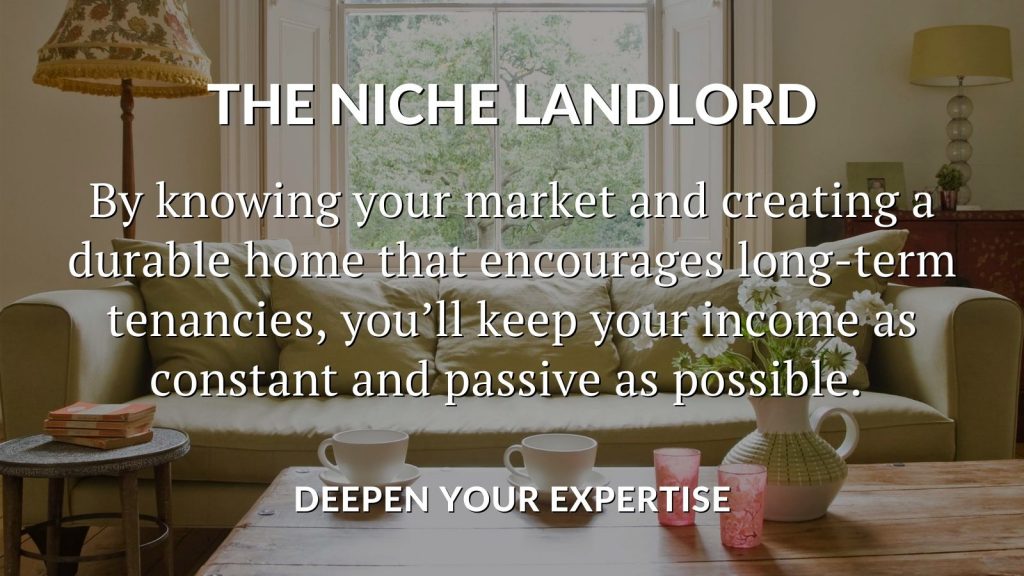
These pointers aren’t exhaustive, but as an idea of the differences to consider:
- family households need functional homes to cope with plenty of people and all-day use. That means lots of cupboard space in the kitchen along with a full-size dishwasher, a washing machine with a big load capacity and space for a large fridge/freezer. If you’re renovating, keep at least one bathtub to make bath time for children easier – not to mention that a rubber duck is way less fun in a shower cubicle! Gardens with a lawn provide a safe play area.
- couples and singles create less wear, come with less stuff and still have the luxury of being style-conscious. They love sociable spaces where the kitchen is open to the living room, making quieter appliances a smart choice. If you’re renovating the bathroom, replacing the tub with a walk-in shower will create that all-important showstopping moment. Outside, low maintenance patios and balconies are generally preferred.
BUILD A REPUTATION
Being known as a local landlord of popular rental properties helps you secure the best tenants at the best rents. When your letting agent can gush about your homes, it gives tenants a great deal of comfort to feel they’ll be living somewhere that’s expertly owned and managed.
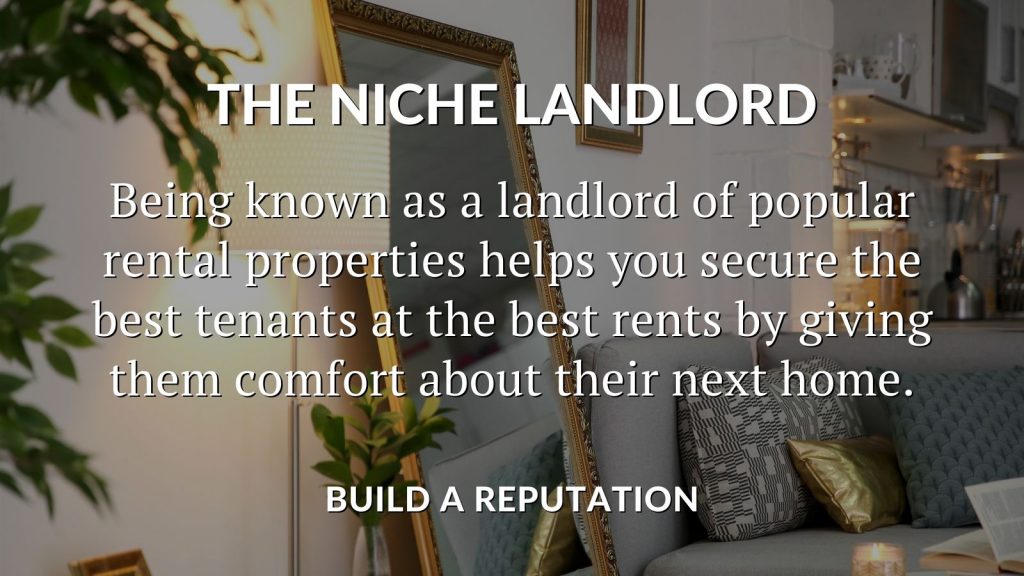
Having a solid reputation also adds credibility to your offers when you’re looking to expand your portfolio. Citing your existing successful properties will show that you’re a professional landlord with a proven track record who can proceed without a hitch.
The same goes for when multiple offers are competing against yours. Sellers – and sometimes agents – can find it difficult to be entirely sure which buyer is the best one, but a chain-free and well-regarded local landlord is a sound proposition that can add a sense of much-valued security to a sale.
EXPAND WITH EASE
Suppose you’re achieving a healthy rental income from one property in a neighbourhood. It’s a safe bet that a similar home nearby will be just as profitable, so you can double down on your success to pick another winner.
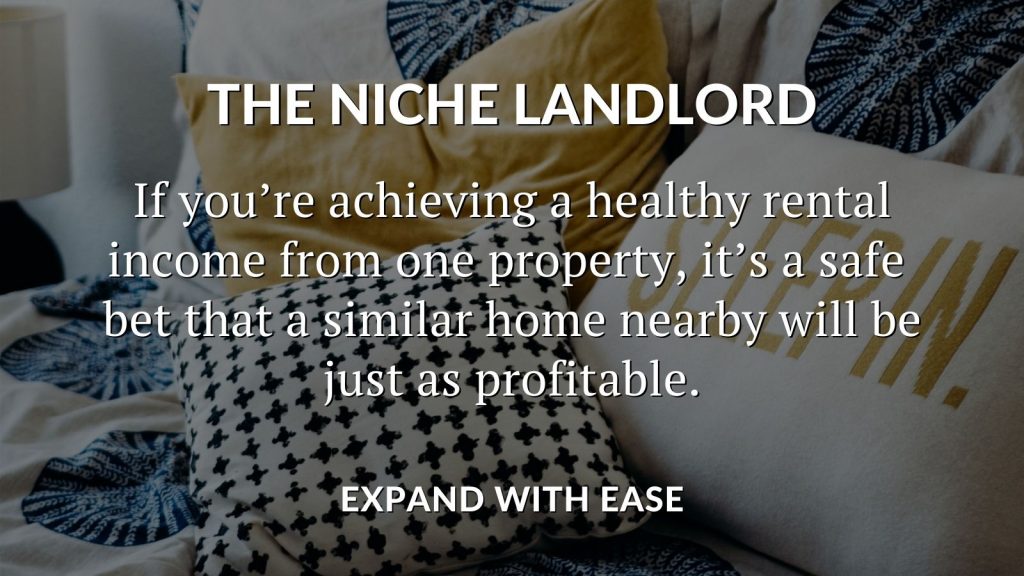
Concentrating your portfolio provides a real focus for your business and makes it easier to identify a good prospect quickly. On the other hand, spreading your rental homes across several different towns or cities means you’ll need to research every location. It can also be time-consuming to look after them all – you’ll either need to find reliable contractors in each area, or multiple managing agents.
You’ll also find new opportunities come to you when you’re known as a reliable local landlord. When agents know your speciality, it makes it easier for them to help you expand your portfolio, and you’ll be among the first people they think of when a candidate property comes up. This can be particularly useful where another landlord is selling and wants to find a buyer off-market.
Final words
Being a specialist is revered in almost every profession and makes it easier to excel in any given field. Well, you can apply the exact same logic to being a landlord. With a deep understanding of your chosen marketplace, you can make confident decisions much faster and attract more property to grow your buy-to-let business.
If you’re looking to begin or expand your rental portfolio in County Louth, why not get in touch for some expert neighbourhood insight? Call us on 042 933 2482 or email us at info@lavelles.ie– we love nothing more than helping landlords create popular and profitable homes.

